Helen Walsh's Blog, page 4
March 15, 2022
Letterbox, Edition 15
This weekend we watched the first episode of Murder in Provence, a cozy mystery series produced by ITV, airing on BritBox.

Set in Aix-en-Provence, France, the scenery will leave you drooling, nose pressed against the television, as cars wind through breathtaking lavender fields, or pull up in front of 16th century chateaus. Then there’s the restaurant scenes where middle-aged characters (yay!) drink rosé and eat charcuterie during long lunch-time meetings, while the sun beams beatifically on the nearby coastline.
Just what the doctor ordered, a brief respite from sitting glued to the unbearably grim news. A contained ninety minutes where bodies are dead because of knowable facts, not because a legacy-crazed barbarian believes blowing up maternity wards is a justifiable act of war.
For some inexplicable reason, only British actors play French characters in the show, using the French pronunciation of names AND English idioms like ‘bollocks’ and ‘bless.’ And no, the plot resolutions won’t leave you dazzled by their ingenuity. But frankly, what cozy mystery does? The audience is there to be entertained, not scared witless that something will crawl out from under the bed (or the Kremlin) once the lights go out.
And all the power to them. We all need a little light right now.

Photo Credit: Dominique Cappronnier
A Google search revealed that Murder in Provence, a US-UK co-production, is the first pan-territorial series commissioned by BritBox, adapted from the popular mystery novel series by M.L. Longworth.
Who, I was surprised to find out, is Canadian.
Knowledge is uneven, and though I’ve spent twenty-five years working around publishing and book reviewing, it hardly makes me an expert. Also, I’ve tended to read dark mystery/thriller novels, not cozy or locked room stories.
But still, I’ve never heard of Mary Lou Longworth. Another (quick) Google search failed to turn up any coverage of her books in the past decade by the Star, Globe, or CBC, other than a brief, syndicated mention of the show adaptation, which failed to mention she is Canadian.
It’s true that reviewing space has decreased substantially over the years, and book editors are pressed to give adequate coverage to the huge volume of books published each year. Choices must be made, and one could see a logical argument for privileging books authored by those living in Canada.
But just as I get frustrated that attention seems to primarily coalesce each publishing season on the same few handfuls of well-marketed titles, I’m eager to know more about what Canadian writers are doing out there in the wider world. There are some bigger names like Emily St John Mandel or Rivka Galchen – both fantastic writers who live in New York – whose books always get covered in our media.
But, beyond that, we don’t hear enough for my liking. And so I’ve started to dig into it, making lists. I will profile the occasional writer here in Letterbox, but I also intend to launch a new monthly newsletter in May profiling ex-pat Canadian writers of books, film and tv and their work, primarily contemporary but also the occasionally historical.

Photo: Mavis Gallant
Please email me with any suggestions to info@helenwalsh.ca, especially of those who live somewhere other than NYC or London. I’d also love to be proven wrong about how well-known ML Longworth is here in Canada!
As a child of parents who emigrated to Canada – and my sisters, too, I’m the first one born here – I’ve long been fascinated by the stories of people who leave their country of origin, for whatever reason, and how that experience shapes them, the country they settle in and their perception of the world. It’s why I started the literary organization Diaspora Dialogues.
As a dual citizen (Canadian + Irish/EU), I’m a firm believer that hyphenated identities are rich ones. That a loyalty doubled is not one divided.
And while I’m generally wary about nationalism, at least the full-throttled variety that covers up failings for the sake of sentimentality, I’m also cognizant of the human drive to define and belong.
In the Irish context, given colonialism’s footprint and the ongoing conflict in the North, there are complicated questions to ask about to whom a country belongs – those who live there currently, and form community day in/out? Or those who historically did? And if the latter, at what point in history do you draw the starting line, given the reality of human movement across millennium.
Of course in Canada, we’re beginning to more fully reckon with the violence upon which the ‘country’ was formed and its treatment of, and relationship with, Indigenous Peoples. The same country that gave succor to tens of millions of immigrants, including my family, was ‘settled’ based on the attempted extinction of others.
For me, a country is a messy mix of legal entity, keeper of cultural history, and present-day community. I think too often as Canadians we’re quietly suspicious about our fellow citizens who choose to build their lives or careers outside our borders, as if they turned their backs. I’m uninterested in narrow definitions of anything, including what it means to be Canadian. So very excited to dig in and unveil the cozy mystery of who these Canucks are.
(PS – I can’t think of a great name for the new newsletter. Any suggestions welcome.)
Pull FocusDelighted to have several events coming up over the next few weeks. Please join me!
Arts & Letters Club, Toronto – March 22, 2022, lunchtime. Open to any current members of the club, or those who want to become one. This is an in-person event.
Los Angeles Launch, Piccolo Santa Monica – March 28, 2022, 5-7pm. My US book tour dates last fall got postponed due to Covid restrictions. The LA date has been rescheduled for March 28th. It’s in-person, at an outdoor venue. Delighted to be partnering with Diesel Books, a great independent bookstore with locations in Brentwood and Del Mar. If you’re going to be in LA then, please email me for details as would love for you to come.

And a big thank you to the Consulate General of Canada in Los Angeles for their generous support.
AfterWords Literary Festival, Virtual – April 14, 2022. This great Halifax-based festival takes place in the fall, this year Sept 28-Oct 2, with a hybrid line-up. But they’ve also launched off-season virtual programming; this spring that includes Stephens Gerard Malone, Michelle Good and me. You’re all very welcome to join us digitally when I’ll be in conversation with writer, journalist, and festival co-director Stephanie Domet. Free registration HERE.
The festival bookseller is another great indie bookstore, BookMark, which has locations in Halifax and Charlottetown.
I’ve also just returned from a trip to Exuma, where I was working on revisions to a follow-up novel including a series of interviews. I also found the US Drug Enforcement Agency military complex hidden mid-island – the only setting in the novel I didn’t know. It was as scary as I had imagined it would be. I drove the barbed wired, electrified perimeter – the only car – taking surreptitious photos as I spoke reassuring words into my phone about being a lost Canadian tourist, assuming they were listening.
(I was going to share those photos in the newsletter, but suddenly realized maybe having Search Engine Optimization pick those up might not be the smartest move…)
Exuma and Grand Isle Resort was as gorgeous as ever. Santana’s still serves up the best breaded grouper on the island and Mom’s bakery next door the best rum cake. Mom herself is 90 this year and was seated outside under the tree chatting away on her cellphone to her son. Some fancy new restaurants have opened in the past couple years, including BLU on the Water and The Grill House at 23° North, but the old favs were all there, too.
 News & Gossips
News & GossipsI was so delighted to see Catherine Hernandez’s film Scarborough, an adaptation of her 2017 novel, pick up several Canadian Screen Awards including a best screenplay nomination for Catherine herself. (Winners announced April 10th.)

The book was a huge success – and is currently short-listed for Canada Reads 2022. The film, directed by Shasha Nakhai and Rich Williamson, is currently playing at TIFF Lightbox as well as other select cinemas.
**
I’m currently making my way through the Oscar nominated movies I haven’t seen. (Sadly, many of them.) I recently watched Summer of Soul, a remarkable documentary about the 1969 Harlem Cultural festival.
“This ‘Black Woodstock’ thing existed almost on a level of the Great Pumpkin or Santa Claus or something,” says Thompson. “Nobody believed it actually happened, so when they came by just to talk about it, I was skeptical. When the meeting was over, I thought, ‘I’m never seeing them again.’”
The documentary includes clips from 40 hours of rarely seen footage by musicians including Stevie Wonder, Nina Simone, Gladys Knight, Mahalia Jackson, BB King, the 5th Dimension and more. Footage that had sat literally in a basement all these decades, erased from the wider cultural history as so much of the Black experience has been.
But no longer. The film contains important historical information – cultural, political, artistic. It’s also hugely compelling. I bet you’d enjoy it as much as I did. (I watched it on Netflix.)
It also led me to Google what happened to Sly & The Family Slone, whom I adored as a child in the 70s.

Very sadly, he seems to be living in his van in California, victim to his own demons as well as financial mismanagement. He launched a breach-of-trust suit against his former manager Jerry Goldstein, claiming he was cheated out of more than a decade’s worth of royalties. He was awarded $5million by a LA Supreme Court jury in 2015 but later that year a judge ruled that Stone could not collect because he sold his royalties to a production company in the 1980s.
The rights to that music catalogue is a varied tale, and they eventually ended up owned by Michael Jackson’s estate.
Whatever the legal in/outs, though, I find it nauseating that a talented musician ends up unhoused while everyone else makes money off his art. I remember when the story broke about Leonard Cohen’s manager embezzling his money, a senior editor I worked with at the time said, “Leonard should have kept his eye on the ball.”
Seems to me the focus should be on predatory business practices, not blaming artists for the fact they’re not good money managers.
NEXT UP: NAVALNY, the documentary about the Russian opposition leader poisoned with nerve agent novichok, a favourite method for silencing critics of the Kremlin.
I’m also currently reading Moneyland: The Inside Story of Crooks and Kleptocrats, by British journalist Oliver Bullough (who lived and worked in Moscow for years).

It’s a stunner of a book that traces the shadowy world of the super rich, including leaders who pilfer their country’s assets for personal gain (such as the Russian-based Ukranian president Viktor Yanukovych, 2010-2014 ) and the systems that help them protect their wealth. (Hello, Swiss Banks and UK government. We’re looking at you.)
The book was published in 2018, and like many articles and books on the subject, there’s a resigned sense of about what little can actually be done to combat money laundering in a world where capital flows unrestricted across borders but laws do not. I started reading it before the Russian invasion of Ukraine and am considering it now in a different context, given that the West has seemingly decided coordinated economic action against laundered money is actually possible.
**
Long, fascinating read in the Sydney Review of Books debating the proper recognition for translators, including the Twitter storm that broke out last September after the Society of Authors in London called for the names of literary translators to be acknowledged on the covers of all translated books.
Are the efforts of translators to achieve greater visibility ‘presumptuous’ and ‘hubristic’? Or, given the months or years of careful re-writing involved, is a translator essentially a second author of the work whose contribution is unjustly minimized, in what is fundamental an issue of power?
“So it comes as no surprise that it is primarily women translators, queer translators, and translators of colour who are leading this newest iteration of the pro-translator movement. And they are doing it on social media – the one place where it is (sometimes) possible to evade the gatekeepers and undermine the hierarchies of the old literary guard.
For a lighter take on the same issue, I recently watched a rom-com, Book of Love. Its commentary on books and authors made me laugh (sometimes uncomfortably), even if the movie has more than its fair share of cliches.

**
Also on Twitter, ongoing threads about who actually makes money in publishing. Not most Canadian authors, as the satirical new anonymous @ILoveCanLit account joked in its "$500 two-book deal” tweet. (Sadly, poet/author Fawn Parker revealed herself to be the person behind the satire and the account disappeared last night.)
Not juniors editors at big American houses, four of whom very publicly resigned last week including Molly McGhee of TOR, who posted this resignation note. She’d had enough, after being refused promotion, despite carrying the administrative burden of senior editors and her success repping a book that landed on the NYT bestseller list. (The argument of all four has been that record sales and corporate earnings of large publishers the past couple years has not been reinvested back into staff.)
And not many agents, working second jobs to support their calling, and for whom editorial resignations have a profound effect, given the months and years spent establishing those relationships.
Publishing’s a business, except, sadly, not so much a profitable one for many.
Bye for now. Thank you for joining me for this fifteenth issue of Letterbox . Please remember to:
January 24, 2022
Letterbox
The Exumas are a chain of 365 cays over 130 miles in The Bahamas, starting thirty miles southeast of New Providence. Great Exuma, at 60 kilometres long, is the largest and most populated island (about 7,000). Much of the beaches and sea in the area are preserved by the government under the Exuma National Land and Sea Park, protecting underwater limestone and coral reefs, drop-offs, blue holes, caves, and marine life.
I snapped this picture from the plane’s window upon approach in Jan 2019:
 a.image2.image-link.image2-428-570 { display: inline; padding-bottom: 75%; padding-bottom: min(75%, 427.5px); width: 100%; height: 0; } a.image2.image-link.image2-428-570 img { max-width: 570px; max-height: 427.5px; }
a.image2.image-link.image2-428-570 { display: inline; padding-bottom: 75%; padding-bottom: min(75%, 427.5px); width: 100%; height: 0; } a.image2.image-link.image2-428-570 img { max-width: 570px; max-height: 427.5px; } But Exuma is so much more than white sand beaches and Sapphire Bombay Gin blue waters. (And yes, those swimming pigs of internet fame, with their fondness for bum bites, and floating you-know-whats.)
 a.image2.image-link.image2-696-522 { display: inline; padding-bottom: 133.31043956043956%; padding-bottom: min(133.31043956043956%, 695.8804945054945px); width: 100%; height: 0; } a.image2.image-link.image2-696-522 img { max-width: 522px; max-height: 695.8804945054945px; }
a.image2.image-link.image2-696-522 { display: inline; padding-bottom: 133.31043956043956%; padding-bottom: min(133.31043956043956%, 695.8804945054945px); width: 100%; height: 0; } a.image2.image-link.image2-696-522 img { max-width: 522px; max-height: 695.8804945054945px; } Exuma is filled with locally owned restaurants serving up heaping plates of grilled fish and a choice of sides, owners happy to sit down with you for a chat. It’s long strands of unpopulated beaches. It’s rake ‘n scrape bands at local fish frys or BBQs set up at the side of the road.
In short – gloriously unpretentious compared to the rich enclaves of New Providence.
I was introduced to Exuma by friends Glenn and Barb McInnes. Part-time residents of the island, Glenn and Barb made it their passion to explore the island, its history and the people who called it home.
Whether that’s Santana’s Grill Pitt, an ocean side spot on Little Exuma owned by Denise “Dee” Rolle Styles, whose signature dish of grilled Bahamian lobster with fried onions and rice and peas is an island favourite. (Alas, not for me, with my shellfish allergy, but her grouper’s mighty fine too.)
 a.image2.image-link.image2-437-582 { display: inline; padding-bottom: 75%; padding-bottom: min(75%, 436.5px); width: 100%; height: 0; } a.image2.image-link.image2-437-582 img { max-width: 582px; max-height: 436.5px; }
a.image2.image-link.image2-437-582 { display: inline; padding-bottom: 75%; padding-bottom: min(75%, 436.5px); width: 100%; height: 0; } a.image2.image-link.image2-437-582 img { max-width: 582px; max-height: 436.5px; } Dee cooks what her husband catches that day. Next door at Mom’s Bakery, her mother instructs you to ladle rum kept warm on the stove over your already saturated cake. (Makes one hell of a breakfast, let me tell you.)
Glenn and Barb also introduced me to local artisan Yvonne McKenzie, who sells woven purses and satchels out of her house or the Georgetown market. And to the legendary Captain Jerry, a 5th generation Exumian whose mother was the Shark Lady of Hogs Cay, and who caught sharks with a hand line.
It’s hard to pinpoint Captain Jerry’s exact age; somewhere between 70 and 90, I’d guess. A lifetime spent in the sun has given his skin a weathered look, although he stands ramrod straight for hours as he pilots his twin-vee catamaran, transistor radio gently crooning songs from the 50s, along the waters of his grandparents and their grandparents before that.
There’s no-one famous that has come through Exuma in his lifetime who Captain Jerry hasn’t piloted, including Johnny Depp, who filmed Pirates of the Caribbean there and stayed in Jerry’s villas. Rumour has it he’s been back to visit more than once but you won’t get any gossipy details from Jerry. He possesses an old-timer’s sense of propriety.
 a.image2.image-link.image2-319-728 { display: inline; padding-bottom: 43.81868131868132%; padding-bottom: min(43.81868131868132%, 319px); width: 100%; height: 0; } a.image2.image-link.image2-319-728 img { max-width: 728px; max-height: 319px; }
a.image2.image-link.image2-319-728 { display: inline; padding-bottom: 43.81868131868132%; padding-bottom: min(43.81868131868132%, 319px); width: 100%; height: 0; } a.image2.image-link.image2-319-728 img { max-width: 728px; max-height: 319px; } Jerry is an avid environmentalist, so a boat trip with him is a masterclass both in the history of The Bahamas as well as the natural world and its stewardship. In the 60s, he discovered an underwater cave system while snorkeling; when a film crew arrived on Great Exuma to shoot scenes for the 1965 James Bond movie Thunderball, they used the cave setting. (It was used again as location for Never Say Never Again; it’s one of the most stunning places I have ever snorkelled.)
Exuma was “settled” by loyalists escaping the American revolutionary war in 1783. Denys Rolle and then his son John, 1st Baron Rolle, turned the islands – themselves uninhabited for two hundred years after the Lucayans, the Indigenous peoples of The Bahamas, were wholly enslaved and removed by the Spanish – into a cotton plantation economy. The economy was a failure, and at emancipation in 1834, Rolle deeded all his Exuma land holdings to his slaves. (The Story of The Bahamas gives a more fulsome history of the region.)
The Bahamas is sandwiched between supply to the south and demand to the north, and so historically has found itself caught up in rum running (during prohibition), drug smuggling (including Norman’s Cay, once owned by the Medellin Cartel) and of course as a haven for money launderers and the tax allergic. It’s worth noting that The Bahamas, unlike Canada, the US, and the UK, has instituted several laws in recent years aimed at greater transparency, including a beneficial registry to track who owns and ultimately controls corporations.
My second novel, a follow-up to Pull Focus, is set in Exuma and delves into these issues of power and wealth – including private banks, money-laundering, criminal enterprises, and the colonial legacies that brought us to where we are.
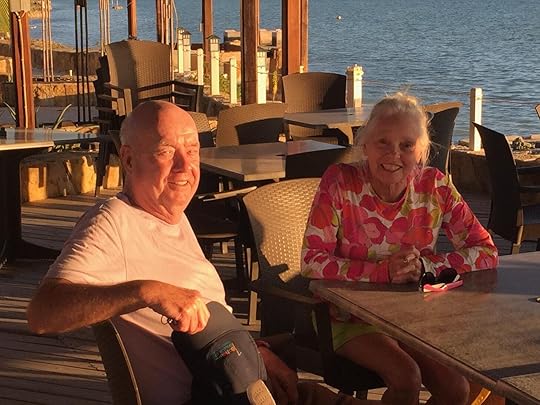 a.image2.image-link.image2-441-588 { display: inline; padding-bottom: 75%; padding-bottom: min(75%, 441px); width: 100%; height: 0; } a.image2.image-link.image2-441-588 img { max-width: 588px; max-height: 441px; }
a.image2.image-link.image2-441-588 { display: inline; padding-bottom: 75%; padding-bottom: min(75%, 441px); width: 100%; height: 0; } a.image2.image-link.image2-441-588 img { max-width: 588px; max-height: 441px; } Very sadly, Barb McInnes passed away last year. She was a remarkable force for good in this world; in Ottawa, where she spent decades building the Ottawa Foundation, as well as across Canada and internationally as a philanthropist, board member, mentor, and community builder. For her leadership and hard work, Barb received the Order of Canada as well as other recognition. She was committed to executive mentoring of under-represented communities, and her family established a fund to continue that work. Donations can be made HERE.
Some of you may have watched the competing documentaries about the ill-fated Fyre Festival on Exuma in 2019. (Which may just have influenced the festival backdrop in my novel. . .) Many local people worked flat out to construct lodging and provide food, and were stiffed by the event organizer, fraudster Billy McFarland (currently serving a six-year sentence in federal prison).
Maryann and Elvis Rolle, owners of the amazing Exuma Point Bar and Grille, lost her life savings covering the cost of the food and staff wages. A Go Fund Me page raised $237k USD to help reimburse them, although in Maryann’s generous fashion, she gave away almost half of that to people in need.
Prompted by an epic snowfall and unusually frigid Toronto temperatures last week, as well as news of Omicron’s peak, I booked a trip for the end of February. Looking forward to being warmed by Exuma’s charm, once again.
Pull FocusThe audio book version of Pull Focus recently launched!
 a.image2.image-link.image2-250-476 { display: inline; padding-bottom: 52.5%; padding-bottom: min(52.5%, 249.9px); width: 100%; height: 0; } a.image2.image-link.image2-250-476 img { max-width: 476px; max-height: 249.9px; }
a.image2.image-link.image2-250-476 { display: inline; padding-bottom: 52.5%; padding-bottom: min(52.5%, 249.9px); width: 100%; height: 0; } a.image2.image-link.image2-250-476 img { max-width: 476px; max-height: 249.9px; } Directed by Brenly Charkow, the book was narrated by actress Shannon Blanchet who did a remarkable job with the wide range of characters and accents in the novel. I met with Brenly and Shannon last August to talk through the book and all the various characters, before they went into studio to record it.
Writing is a solitary pursuit, so I enjoyed both the book editing and production processes as well as the making of the audiobook. Reminded me happily of when I worked in film. @ECWAudio will post an interview with me about the audiobook process on their Twitter and Instagram social media accounts January 30th.
**
I had a lot of fun chatting with radio and televisions personality Richard Crouse (Newstalk, CTV, CP24) about Pull Focus. HERE is a podcast of the show, in which he intervened film critic Leonard Maltin and me.
 a.image2.image-link.image2-334-534 { display: inline; padding-bottom: 62.5%; padding-bottom: min(62.5%, 333.75px); width: 100%; height: 0; } a.image2.image-link.image2-334-534 img { max-width: 534px; max-height: 333.75px; }
a.image2.image-link.image2-334-534 { display: inline; padding-bottom: 62.5%; padding-bottom: min(62.5%, 333.75px); width: 100%; height: 0; } a.image2.image-link.image2-334-534 img { max-width: 534px; max-height: 333.75px; } Thank you to eBookNerdReviews for their lovely review of Pull Focus. “This book is perfect for anyone looking for an action-focused mystery/thriller with a strong female lead. It will satisfy your cravings for a feminist heroine and provide a good mystery to boot!”
News & GossipsPublishing is difficult, at every stage of the process. Getting a book accepted for publication seems like the pinnacle of the climb, when in fact it’s only just the first hill. Media and booksellers are just as powerful gatekeepers as publishers themselves. I wrote about the challenges facing new and unknown writers in this Toronto Star op-ed, Don’t Judge A Book by Its Coverage. Culture is a business. I don’t think in Canada we acknowledge that reality enough, and thus ill prepare writers to deal with it.
 a.image2.image-link.image2-372-570 { display: inline; padding-bottom: 65.1012891344383%; padding-bottom: min(65.1012891344383%, 371.0773480662983px); width: 100%; height: 0; } a.image2.image-link.image2-372-570 img { max-width: 570px; max-height: 371.0773480662983px; }
a.image2.image-link.image2-372-570 { display: inline; padding-bottom: 65.1012891344383%; padding-bottom: min(65.1012891344383%, 371.0773480662983px); width: 100%; height: 0; } a.image2.image-link.image2-372-570 img { max-width: 570px; max-height: 371.0773480662983px; } **
I enjoyed this Lit Hub article last week where writers provide a frank insight into the continual rejections that a writing career entails. US author Sam Lipsyte, possibly the most frank of all 🙂:
The bullshit never ends. That’s the main thing to remember. It never ends. The assholes are stronger in most ways. So you have to ignore them and just write and let that be the meaning of it all.
But the one I most relate to is the Pulitzer prize-winning Jennifer Egan. Having worked at a magazine, sat on many juries and run mentoring programs, you realize just how subjective the process of evaluation really is:
[When I was a reader for The Paris Review,] I learned how many writers there were out there, and it was terrifying! But I also learned not to take the process too seriously. I figured that if I, a nobody in an un-airconditioned East Village apartment (batches of manuscripts were sent to me there), had the power to reject the slush pile, I couldn’t worry too much when my own stuff was rejected.
**
I was meant to be in Park City this week for the Sundance Festival and skiing, but that damn Omicron moved the festival to digital only and I ended up not travelling.
 a.image2.image-link.image2-408-728 { display: inline; padding-bottom: 56.043956043956044%; padding-bottom: min(56.043956043956044%, 408px); width: 100%; height: 0; } a.image2.image-link.image2-408-728 img { max-width: 728px; max-height: 408px; }
a.image2.image-link.image2-408-728 { display: inline; padding-bottom: 56.043956043956044%; padding-bottom: min(56.043956043956044%, 408px); width: 100%; height: 0; } a.image2.image-link.image2-408-728 img { max-width: 728px; max-height: 408px; } Barry Hertz has a very good column in The Globe and Mail about the future of film festivals – how hard they’ve been hit, how important they are to the ecology of film, especially for independent film and its Herculean effort to get media and audience attention in the giant vacuum created by studio movies, and whether the future of festivals is online, in-person, hybrid, or bust.
Cameron Bailey, TIFF’s newly minted CEO, is quoted as saying “We’re planning for an in-person festival and a return for the industry and everyone to Toronto. But we know how to do the other elements if and when we need to.” Fingers crossed for the return of the full TIFF experience come September.
(Bailey was the co-head of TIFF until last fall when the other co-head, Joanne Vicente, left to become CEO of Sundance and Bailey was promoted to CEO)
Meanwhile at Sundance, the first big sale of the festival (which opened January 20th) was for Fire of Love, a documentary and love story about two French scientists who died tracking the volcanoes that were their greatest passion. A fierce bidding war broke out among Netflix, Amazon, Sony Pictures Classics, Paramount and several others; National Geographic Documentary Films won out, with a final figure not disclosed but rumoured to be seven figures. They plan to release theatrically later this year.
This Indiewire blogs tracks news and reviews from Sundance (and ultimately the films coming to you via small or big screens later this year), if you’re interested.
**
For fans of the HBO show Succession (7 million for the last episode), star Brian Cox has a new memoir out, Putting the Rabbit in The Hat. Kirkus Reviews runs an interview with him HERE.
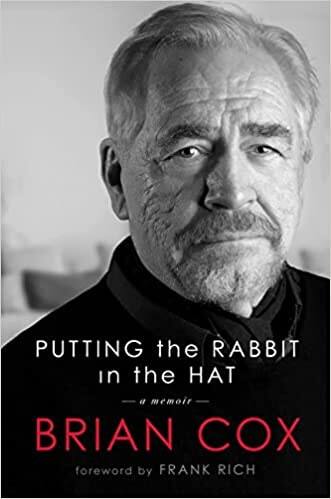 a.image2.image-link.image2-499-331 { display: inline; padding-bottom: 150.75528700906344%; padding-bottom: min(150.75528700906344%, 499px); width: 100%; height: 0; } a.image2.image-link.image2-499-331 img { max-width: 331px; max-height: 499px; }
a.image2.image-link.image2-499-331 { display: inline; padding-bottom: 150.75528700906344%; padding-bottom: min(150.75528700906344%, 499px); width: 100%; height: 0; } a.image2.image-link.image2-499-331 img { max-width: 331px; max-height: 499px; } “I keep coming up against American actors who have to make [acting] a religious experience. Like that well-known story about Olivier telling Dustin Hoffman, running himself ragged during Marathon Man [because his character is tortured and kept awake]: “Dear boy, why not try acting?”
Bye for now. Thank you for joining me for this thirteenth issue of Letterbox. Please remember to:
November 29, 2021
Letterbox
Last week, Anthony Broadwater, a man convicted of the rape of bestselling author Alice Sebold, the experience of which she wrote about in her celebrated 1999 memoir, Lucky, was exonerated.
 a.image2.image-link.image2-506-1204 { padding-bottom: 42.0265780730897%; padding-bottom: min(42.0265780730897%, 506px); width: 100%; height: 0; } a.image2.image-link.image2-506-1204 img { max-width: 1204px; max-height: 506px; }
a.image2.image-link.image2-506-1204 { padding-bottom: 42.0265780730897%; padding-bottom: min(42.0265780730897%, 506px); width: 100%; height: 0; } a.image2.image-link.image2-506-1204 img { max-width: 1204px; max-height: 506px; } And in a stranger-than-fiction twist, the Executive Producer of the Netflix film adaptation of Lucky played a supporting role in the exoneration before he himself was fired from the production for raising questions.
In a plot twist worthy of an Oscar, the project was then subsequently killed, according to Variety, after the financiers pulled their support.
It was during the show’s pre-production earlier in early 2021 that Timothy Mucciante, executive producer of the Netflix production but previously a lawyer and sex crimes prosecutor in Michigan, began to have suspicions when he read the first draft of the film script, which differed significantly from Lucky.
Mucciante hired a private investigator to review the original legal case against, and conviction of, Broadwater, who served 16 years in prison for the crime.
Broadwater had no previous criminal history when arrested five months after the crime. Sebold had seen him walking along a sidewalk, and thought she recognized him. The racial component to the crime – a white woman accusing a Black man – cannot be ignored, especially given the wider historical context of similar charges.
"Research has found that the risk of eyewitness misidentification is significantly increased when the witness and the subject are of different races.”
Mucciante’s investigator raised serious questions about the forensic evidence used in the case, as well as the fact that Sebold’s failure to initially identify Broadwater in a police line-up was not presented at trial.
Last week, a New York state judge overturned all charges against Anthony Broadwater.
Alice Sebold has not yet issued a statement, and her publisher Scribner declined to comment, other than to say there were no plans to update the memoir. (A pseudonym was used instead of Broadwater’s name.)
It’s a twice-cursed story. Alice Sebold’s life was forever shaped by the violent trauma she experienced as a university freshman. And Anthony Broadwater’s life was stolen from him – beyond the jail time, he was unable to get a job because of his sex offender status, nor was he willing to bring children into a world which had treated him so unjustly, despite the wishes of his wife.
I’ve always been queasy about moral quandaries of True Crime, whether that is documentaries or books or podcasts.
At their worst, they are pop culture entertainment that peddles in the pain and suffering of others, offered up on an altar of belief that insists an objective truth exists, and it belongs to the greater collective, rather than the individuals or families directly involved.
At their best, though, they carry the promise to right wrongs. After all, Anthony Broadwater was denied parole at least five times, according to his attorneys, because he wouldn’t admit to a crime he didn’t commit. He never stopped trying to clear his name. Yet it took 40 years, and 5 sets of attorneys before that happened. The latest set of lawyers got involved partially due to Tim Mucciante, the Executive Producer fired from the Netflix show.
Regardless of what I think, one thing is for sure certain – the audience for True Crime is massive and addicted.
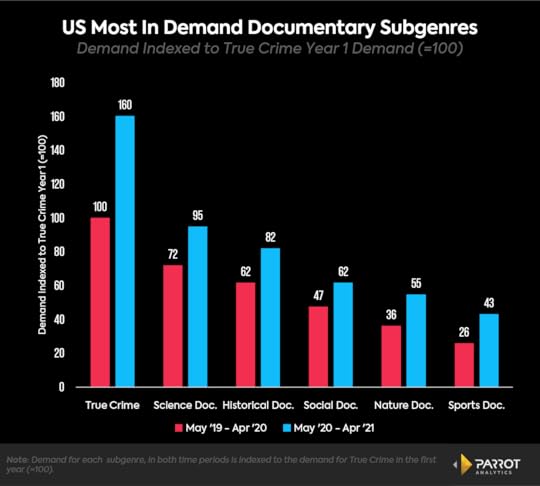 a.image2.image-link.image2-398-442 { padding-bottom: 90%; padding-bottom: min(90%, 397.8px); width: 100%; height: 0; } a.image2.image-link.image2-398-442 img { max-width: 442px; max-height: 397.8px; }
a.image2.image-link.image2-398-442 { padding-bottom: 90%; padding-bottom: min(90%, 397.8px); width: 100%; height: 0; } a.image2.image-link.image2-398-442 img { max-width: 442px; max-height: 397.8px; } People have always been consumed by crime stories. Beyond the perennial bestselling Mystery & Thriller titles, many general fiction books are rooted in a violent episode, whether that is the Pulitzer Prize winning The Executioner’s Song by Norman Mailer, Margaret Atwood’s Alias Grace or The Blind Assassin, or Colson Whitehead’s recent Harlem Shuffle.
In addition to Lucky, Alice Sebold also wrote the hugely popular novel, The Lovely Bones, whose protagonist is a teenage girl in heaven after she’s been killed by a rapist. The book sold more than 8 million copies and was adapted into a movie.
Why are stories of brutality so compelling? It’s a question I asked myself as a university student when I was drawn to completing a major in Criminology alongside an English Lit degree.
The study of criminology is a mixture of psychology, sociology, and criminal law. Why humans do what they do, the larger societal and institutional context that influences or eclipses free will, and governmental reaction.
The law is the fundamental underpinning of the societal contract in which we all live. It’s a forced contract – there’s no opt-out, despite what QAnon might tell their supporters. But the institutions charged with administering those laws are fallible, and like all systems of power, they’re designed to maintain the status quo.
When I was a teen-ager, there were two grisly news stories that consumed the imagination. I’m still unable to walk into a home garage without thinking of Peter Demeter, and his wife Christine whom he had bludgeoned to death.
Nor do I ever drive alone at night on the highway without remembering the case of Lynda Shaw, a young woman from Huttonville (near Brampton) who was driving back to Western University when her car was tampered with at a gas stop, and she was subsequently forced off the road, raped, and murdered.
Storytelling is the collective campfire. A millennia of cautionary tales have warned us about things (and people) that howl in the shadows. That they provide both entertainment and valuable lessons are equally true. Their stickiness, especially when imbedded at a young age, is inevitable.
Although I’m not an aficionado of True Crime, I frequently read mysteries and thrillers. And I’ve written about this case in this newsletter.
I also found myself this fall eagerly awaiting each new weekly installment of Hulu’s fictionalized Only Murders in The Building, a mystery-comedy about three true-crime podcast addicted New Yorkers who take it upon themselves to investigate a murder that takes place in – you guessed it – their NYC brownstone.
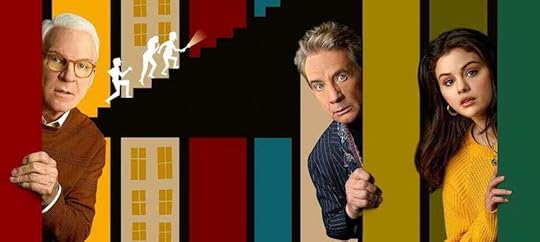 a.image2.image-link.image2-430-960 { padding-bottom: 44.79166666666667%; padding-bottom: min(44.79166666666667%, 430px); width: 100%; height: 0; } a.image2.image-link.image2-430-960 img { max-width: 960px; max-height: 430px; }
a.image2.image-link.image2-430-960 { padding-bottom: 44.79166666666667%; padding-bottom: min(44.79166666666667%, 430px); width: 100%; height: 0; } a.image2.image-link.image2-430-960 img { max-width: 960px; max-height: 430px; } It was compelling in part because of the chemistry among actors Selena Gomez, Martin Short and Steve Martin, with cameos by Sting, Nathan Lane, and others.
And partly because it was a break from the endless grisly crime shows that make up the streamers these days, whether they be true or fictionalized. I’m not alone. Hulu confirmed Only Murders in the Building was their most-watched comedy EVER, by a good measure.
As the poet Gregory Scofield wrote this weekend on social media, sometimes you crave the light.
Writing & Pull Focus BuzzI’m enormously grateful for the positive reviews of Pull Focus published recently.
Kirkus Reviews: Starred Review, “Two thumbs up for action, suspense, and lust.”
The opening of a major film festival goes off script when the CEO’s former husband and his half brother—her current lover—go missing…The title of this taut, thrilling literary novel, written by a former film producer, refers to a camera technique in which the focus adjusts from one character to another.
“[An] accomplished thriller debut […] Walsh’s expert knowledge of the film industry, the corporate world, and the ruthlessness of players in both adds arresting verisimilitude to this novel. Great for fans of Britt Lind’s Deception & Taylor Jenkins Reid’s Malibu Rising.”
“Amazingly propulsive […] A masterclass debut that shows Walsh as a talent to watch.”
“Pull Focus is a sexually driven thriller that gets steamier with every turn of the page. Walsh should get this story onto a script so more people can experience this thrill ride.”
Canadian Living Magazine – Inclusion in Holiday 2021 Gift Guide (December issue)
Give More Canadiana. 20 True North Books That Enlighten and Entertain.
 a.image2.image-link.image2-278-278 { padding-bottom: 100%; padding-bottom: min(100%, 278px); width: 100%; height: 0; } a.image2.image-link.image2-278-278 img { max-width: 278px; max-height: 278px; }
a.image2.image-link.image2-278-278 { padding-bottom: 100%; padding-bottom: min(100%, 278px); width: 100%; height: 0; } a.image2.image-link.image2-278-278 img { max-width: 278px; max-height: 278px; } Chatelaine Magazine: Feature: Best Suspense Books To Read This Fall.
Sex, murder, jealousy, and greed: These are the seasonings that go into cooking up a juicy thriller. Here are four sure fire ways to satisfy your hankering for dark drama. A Slow Fire Burning by Paula Hawkins, All Her Little Secrets by Wanda M. Morris, Billy Summers by Stephen King and Pull Focus by Helen Walsh.
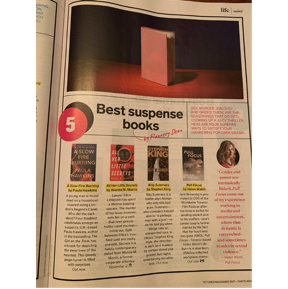 a.image2.image-link.image2-289-288 { padding-bottom: 100.34722222222223%; padding-bottom: min(100.34722222222223%, 289px); width: 100%; height: 0; } a.image2.image-link.image2-289-288 img { max-width: 288px; max-height: 289px; }
a.image2.image-link.image2-289-288 { padding-bottom: 100.34722222222223%; padding-bottom: min(100.34722222222223%, 289px); width: 100%; height: 0; } a.image2.image-link.image2-289-288 img { max-width: 288px; max-height: 289px; } Plus, two new Author interviews/spotlights:
👉 The Table Read (UK) – Author Interview. Via The Table Read
👉 Eden Mills Writers Festival – Author Spotlight. Via Eden Mills
For any readers who bought my book through Amazon, it would be very helpful if you rated and/or reviewed it on the platform. Their algorithm, which determines how titles are promoted, is based on volume; the more engagement (through sales, ratings and reviews), the more publicity they give your book.
As I wrote about in Saturday’s Toronto Star op-ed, “Books are a popularity contest, and not just by celebrity book clubs. Publisher sales teams, booksellers and the media are powerful gatekeepers, who can make or break a book from a new or unknown author. They are influenced by books showcased in industry trades (often American) and book fairs that happen months before publication. Too often these gatekeepers make conservative choices, trending towards the proven bet.”
That’s true of Amazon* but also of Indigo, and to a lesser extent the indie stores, too. Click HERE for the full op-ed full article on why we should all invest in being talent spotters is and yes, it’s behind the Star’s paywall. Support journalism.
*A quick google search will serve up no end of articles, and the new book Everything and Less: The Novel in the Age of Amazon by literary scholar Mark McGurl, criticizing the impact North America’s largest book retailer on the publishing ecology.
Excited to share that I’ve just wrapped up the second draft of my second novel, a follow-up book to Pull Focus. (I’m yet to think of a snappy title). I’ve immediately launching into a third draft, revising one subplot in particular.
Upcoming Event - Words the Orangeville WayJoin us virtually for the annual Words the Orangeville Way literary event produced in partnership with local independent bookstore, BookLore.
This year attendees are invited to enjoy an afternoon of literary entertainment featuring part-time Mono resident and author Helen Walsh and part-time Caledon resident and author Suzanne Hillier. The panel discussion will be moderated by Orangeville's own freelance writer Bernadette Hardaker, and dive into the powerful themes in each author's most recent book: novels Pull Focus by Helen Walsh and My Best Friend was Angela Bennett by Suzanne Hillier.
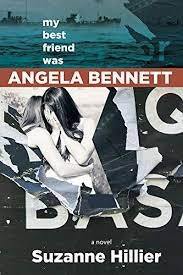 a.image2.image-link.image2-275-183 { padding-bottom: 150.27322404371583%; padding-bottom: min(150.27322404371583%, 275px); width: 100%; height: 0; } a.image2.image-link.image2-275-183 img { max-width: 183px; max-height: 275px; }
a.image2.image-link.image2-275-183 { padding-bottom: 150.27322404371583%; padding-bottom: min(150.27322404371583%, 275px); width: 100%; height: 0; } a.image2.image-link.image2-275-183 img { max-width: 183px; max-height: 275px; } Continuing the conversations coming out of Woman Abuse Prevention Month in November, this panel discussion will explore the trials and tribulations faced by female characters - including sexual harassment, the #metoo movement, domestic violence and women's rights - which translates to the real lived experiences of women, both past and present.
Register in advance to receive the event link to participate live.
**
News & GossipsThe amazing Louise Erdrich has a new book, The Sentence. "We're haunted by the spirits of settlers, by the spirits of government officials, by a history that includes extermination policies explicitly aimed at your nation, my nation, all nations. These are white ghosts." Read the NPR interview HERE.
**
I’m looking forward to seeing Denis Villeneuve’s adaption of the cult 1965 novel Dune by Frank Herbert. The previous adaptation terrified me when I was a teenager and this promises to do similar. It’s getting widespread praise. This Deadline interview with Québec’s Villeneuve and the cast is great. “Dune: Part One became the biggest opening of his career, Warner Bros’ biggest opening of the pandemic era, and a reminder for audiences the world over of the power of cinema.”
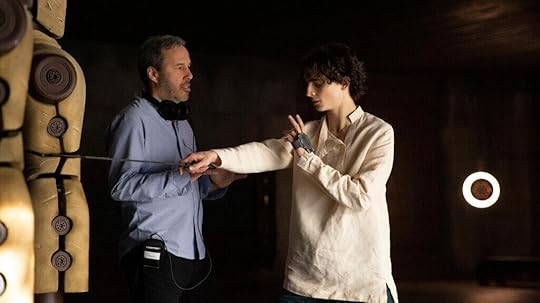 a.image2.image-link.image2-343-610 { padding-bottom: 56.15234375%; padding-bottom: min(56.15234375%, 342.529296875px); width: 100%; height: 0; } a.image2.image-link.image2-343-610 img { max-width: 610px; max-height: 342.529296875px; }
a.image2.image-link.image2-343-610 { padding-bottom: 56.15234375%; padding-bottom: min(56.15234375%, 342.529296875px); width: 100%; height: 0; } a.image2.image-link.image2-343-610 img { max-width: 610px; max-height: 342.529296875px; } **
And while I’m admitting my childhood heebie jeebies, I’d be amiss to neglect cults, in particular the Children of God. Actors Joaquin Phoenix and Rose McGowan grew up, in part, in the infamous cult ran by David Berg. I read McGown’s book, Brave, after meeting and chatting with her at the Edinburgh Book Festival. Now author Faith Jones, the founder’s granddaughter, has written a memoir, Sex Cult Nun: Breaking Away from the Children of God, a Wild, Radical Religious Cult about growing up in on an isolated farm in Macau and her journey to Kazakhstan and finally the US.
Bye for now. Thank you for joining me for this twelfth issue of Letterbox. Please remember to:
October 18, 2021
Letterbox
Live book launches, digital talks, amazing book club discussions, a lot of editorial writing and a trip to London. . .it’s been an eventful month since Pull Focus launched.
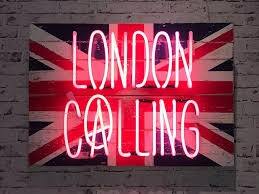 a.image2.image-link.image2-341-455 { padding-bottom: 74.90347490347492%; padding-bottom: min(74.90347490347492%, 340.81081081081084px); width: 100%; height: 0; } a.image2.image-link.image2-341-455 img { max-width: 455px; max-height: 340.81081081081084px; }
a.image2.image-link.image2-341-455 { padding-bottom: 74.90347490347492%; padding-bottom: min(74.90347490347492%, 340.81081081081084px); width: 100%; height: 0; } a.image2.image-link.image2-341-455 img { max-width: 455px; max-height: 340.81081081081084px; } More below about London, and other news. But, coming right up this week are two events, both free with registration. I hope you will join me for one, or both!
Monday, October 18th, 4:30-6:00pm EDT (aka TODAY) – Massey College Book Salon. This is a hybrid event, meaning you are very welcome to come be with us in person at 4 Devonshire Pl, Toronto (Register HERE; requires proof of vaccination at the door). Or please join us via the livestream HERE. I’ll be in conversation with Nalini Stewart moderated by Doug Gibson.
Friday, October 22nd, 3:30-4:30pm EDT – Toronto International Festival of Authors. Tune in to an engaging talk with authors Lola Akinmade Åkerström and Helen Walsh about their powerful debut novels, exploring important social issues, from racism, classism and fetishization; to contemporary feminism and toxic masculinity in the #MeToo age. Register HERE.
 a.image2.image-link.image2-326-622 { padding-bottom: 52.33555767397522%; padding-bottom: min(52.33555767397522%, 325.52716873212586px); width: 100%; height: 0; } a.image2.image-link.image2-326-622 img { max-width: 622px; max-height: 325.52716873212586px; }
a.image2.image-link.image2-326-622 { padding-bottom: 52.33555767397522%; padding-bottom: min(52.33555767397522%, 325.52716873212586px); width: 100%; height: 0; } a.image2.image-link.image2-326-622 img { max-width: 622px; max-height: 325.52716873212586px; } In Nigerian-American writer and photographer Lola Akinmade Åkerström’s In Every Mirror She’s Black, three Black women are linked in unexpected ways to the same influential white man in Stockholm as they build new lives in the most open society run by the most private people. Walsh’s suspenseful, propulsive mystery Pull Focus follows a woman whose partner suddenly goes missing under threatening circumstances, just as she is thrust into the role of director for a major film festival when her boss is removed for sexual harassment.
Leaving on a jet plane. . .
“Pull Focus is a tense thriller set in the international film festival circuit. The novel dives headfirst into issues foregrounded by the #MeToo movement and crafts delightful characters who illuminate struggles in the film world. Whether you love exploring big ideas or just want to be swept up in an exciting thriller, Pull Focus is a read you won’t want to miss.”
Film Daily
It was thrilling and scary to get on a plane again for the first time in eighteen months.
Bit of a shock for a Torontonian to land in a city that has neither mask nor vaccine mandate in place. I continued to wear mine inside buildings, and outside if the streets were busy. And London seemed to be its normal bustling, partying self, with throngs of people shopping and eating up a storm, and young drunk women in pedicabs singing their heart out on Charring Cross Road.
As you know from a previous Letterbox, London is one of my favourite places, so I set down my case at The Bloomsbury Hotel as soon as I arrived, then went walking. First through the neighbourhood to say hello to old friends – LRB Bookshop, Russell Square, Jarndyce Books, Soho.
 a.image2.image-link.image2-550-1456 { padding-bottom: 37.77472527472527%; padding-bottom: min(37.77472527472527%, 550px); width: 100%; height: 0; } a.image2.image-link.image2-550-1456 img { max-width: 1456px; max-height: 550px; }
a.image2.image-link.image2-550-1456 { padding-bottom: 37.77472527472527%; padding-bottom: min(37.77472527472527%, 550px); width: 100%; height: 0; } a.image2.image-link.image2-550-1456 img { max-width: 1456px; max-height: 550px; } Then, a wider circle down to Covent Garden, across Trafalgar Square past the Maple Leaf flags of Canada House and along Haymarket, through St James Park, past Westminster Abbey and Buck House, along the Strand and back up to my hotel. I collapsed exhausted but exhilarated on the restaurant terrace, forced to have Afternoon Tea in order to regain my energy.
 a.image2.image-link.image2-481-1456 { padding-bottom: 33.035714285714285%; padding-bottom: min(33.035714285714285%, 481px); width: 100%; height: 0; } a.image2.image-link.image2-481-1456 img { max-width: 1456px; max-height: 481px; }
a.image2.image-link.image2-481-1456 { padding-bottom: 33.035714285714285%; padding-bottom: min(33.035714285714285%, 481px); width: 100%; height: 0; } a.image2.image-link.image2-481-1456 img { max-width: 1456px; max-height: 481px; } The highlight of my trip was an event at Canada House (the Canadian High Commission to the UK) to celebrate the UK publication of Pull Focus.
During that evening, I was enormously privileged to be interviewed by Lennie Goodings, a Canadian who emigrated to London 40+ years ago and helped build the powerhouse publishing firm Virago Books, serving in multiple roles including Editorial Director, Publisher and now as Chair.
I very much enjoyed our wide-ranging telephone call before the event, and then the interview itself. When she said she really loved Pull Focus, I assumed she was being Canadian polite. But it seemed she did, and she’d read with great attention. Her questions were probing and thoughtful, and she drew parallels to other writers and books, and to moments in feminism.
It was such a great evening, and I floated back across Trafalgar Square to have dinner with friends, elated and grateful to be back in what feels like a second home.
Lennie is intense, focussed and extremely bright. Her memoir, A Life in Books, was published in December 2020. It’s a remarkable book – a university level course on women writers and feminism. She’s had a starring role both as publisher and editor, including to Margaret Atwood and Maya Angelou, among many others. The writing is lively and compelling; I’d highly recommend it.
 a.image2.image-link.image2-408-408 { padding-bottom: 100%; padding-bottom: min(100%, 408px); width: 100%; height: 0; } a.image2.image-link.image2-408-408 img { max-width: 408px; max-height: 408px; } Recent
Pull Focus
Buzz
a.image2.image-link.image2-408-408 { padding-bottom: 100%; padding-bottom: min(100%, 408px); width: 100%; height: 0; } a.image2.image-link.image2-408-408 img { max-width: 408px; max-height: 408px; } Recent
Pull Focus
BuzzChatelaine Magazine – Pull Focus named as one of fall’s best books. (It’s in the November print issue, and not yet available online but here’s a screenshot of the Apple News version of the article.)
 a.image2.image-link.image2-550-579 { padding-bottom: 94.99136442141624%; padding-bottom: min(94.99136442141624%, 550px); width: 100%; height: 0; } a.image2.image-link.image2-550-579 img { max-width: 579px; max-height: 550px; }
a.image2.image-link.image2-550-579 { padding-bottom: 94.99136442141624%; padding-bottom: min(94.99136442141624%, 550px); width: 100%; height: 0; } a.image2.image-link.image2-550-579 img { max-width: 579px; max-height: 550px; } **
 a.image2.image-link.image2-142-648 { padding-bottom: 21.875%; padding-bottom: min(21.875%, 141.75px); width: 100%; height: 0; } a.image2.image-link.image2-142-648 img { max-width: 648px; max-height: 141.75px; } Film Daily – Dive Into The World of Film with Helen Walsh’s Pull Focus. We were lucky enough to talk to Helen Walsh about her work, the novel, and what’s next for her.
a.image2.image-link.image2-142-648 { padding-bottom: 21.875%; padding-bottom: min(21.875%, 141.75px); width: 100%; height: 0; } a.image2.image-link.image2-142-648 img { max-width: 648px; max-height: 141.75px; } Film Daily – Dive Into The World of Film with Helen Walsh’s Pull Focus. We were lucky enough to talk to Helen Walsh about her work, the novel, and what’s next for her.**
Instagram Love
It’s fun to scroll through Instagram and see photos of Pull Focus included by book bloggers, book clubbers and others, including @roseandelight in London, who was part of a book club I visited while in the UK.
I love chatting with book clubs about Pull Focus. Such passionate and careful readers; I inevitably come away with greater insights into the book I wrote!
 a.image2.image-link.image2-661-726 { padding-bottom: 91.04683195592287%; padding-bottom: min(91.04683195592287%, 661px); width: 100%; height: 0; } a.image2.image-link.image2-661-726 img { max-width: 726px; max-height: 661px; }
a.image2.image-link.image2-661-726 { padding-bottom: 91.04683195592287%; padding-bottom: min(91.04683195592287%, 661px); width: 100%; height: 0; } a.image2.image-link.image2-661-726 img { max-width: 726px; max-height: 661px; } **
News & Gossips
The program for Toronto International Festival of Authors is excellent this year. So in addition to joining my event (!), I encourage you to browse the whole programme HERE.
**
Currently shooting in Toronto: the film adaptation of David Chariandy’s excellent award-winning novel, Brother. Clement Virgo (Greenleaf) is writing and directing.
**
McNally Robinson in Winnipeg is celebrating their 40th anniversary (quite a feat in indie bookselling) with new initiatives and celebratory videos by authors.
Meanwhile, Ben McNally Books in Toronto has settled into their new home on King Street East and has a host of events and other activities going on.
**
Watch the 2021 Scotiabank Giller Prize on Monday, November 8 at 9 p.m. (11:30 p.m. AT, 12 midnight NT) on CBC TV and the free CBC Gem streaming service, with a livestream also available on cbcbooks.ca/gillerprize. Listeners can tune into a broadcast special on CBC Radio One and CBC Listen. More about the books on the shortlist HERE. I’m delighted to see my former Diaspora Dialogues colleague Jordan Tannahill on the list.
Meanwhile, the Governor General Literary Awards finalists were announced last week.
It’s terrific there are no crossovers between the Gillers and the GG adult fiction list. A huge number of books are published every year, and this fall the most ever. Many are excellent, and it’s far healthier for the industry to see a divergence of titles highlighted across media, bookselling, book promotion and prizes rather than the same titles over and over again.
Bye for now. Thank you for joining me for this eleventh issue of Letterbox . Please remember to:
September 20, 2021
Letterbox
 a.image2.image-link.image2-58-480 { padding-bottom: 12.000000000000002%; padding-bottom: min(12.000000000000002%, 57.6px); width: 100%; height: 0; } a.image2.image-link.image2-58-480 img { max-width: 480px; max-height: 57.6px; }
a.image2.image-link.image2-58-480 { padding-bottom: 12.000000000000002%; padding-bottom: min(12.000000000000002%, 57.6px); width: 100%; height: 0; } a.image2.image-link.image2-58-480 img { max-width: 480px; max-height: 57.6px; }  a.image2.image-link.image2-799-1200 { padding-bottom: 66.58333333333334%; padding-bottom: min(66.58333333333334%, 799px); width: 100%; height: 0; } a.image2.image-link.image2-799-1200 img { max-width: 1200px; max-height: 799px; }
a.image2.image-link.image2-799-1200 { padding-bottom: 66.58333333333334%; padding-bottom: min(66.58333333333334%, 799px); width: 100%; height: 0; } a.image2.image-link.image2-799-1200 img { max-width: 1200px; max-height: 799px; } It’s the story of a woman appointed to head the Worldwide Toronto Film Festival after her boss has been removed for sexual harassment. Knives are out all around her…..
 a.image2.image-link.image2-186-156 { padding-bottom: 119.23076923076923%; padding-bottom: min(119.23076923076923%, 186px); width: 100%; height: 0; } a.image2.image-link.image2-186-156 img { max-width: 156px; max-height: 186px; }
a.image2.image-link.image2-186-156 { padding-bottom: 119.23076923076923%; padding-bottom: min(119.23076923076923%, 186px); width: 100%; height: 0; } a.image2.image-link.image2-186-156 img { max-width: 156px; max-height: 186px; } Helen Walsh will launch her propulsive Canadian thriller at the next RamsayTalk on Monday, September 27 from 6:00 to 7:00 p.m. ET. Joining her in conversation will be Sarah Fulford, Editor in Chief at Toronto Life Magazine.
Admission to the talk is FREE and we encourage you to buy the book before, during, or after the event.
Date: Monday, September 27
Time: 6:00 - 7:00 p.m. ET
Price: 1-hour free live Zoom event*
Books: Click here to purchase your copy of Pull Focus
Cheers,
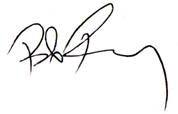 a.image2.image-link.image2-114-178 { padding-bottom: 64.04494382022472%; padding-bottom: min(64.04494382022472%, 114px); width: 100%; height: 0; } a.image2.image-link.image2-114-178 img { max-width: 178px; max-height: 114px; }
a.image2.image-link.image2-114-178 { padding-bottom: 64.04494382022472%; padding-bottom: min(64.04494382022472%, 114px); width: 100%; height: 0; } a.image2.image-link.image2-114-178 img { max-width: 178px; max-height: 114px; } Bob Ramsay
*You will receive a Zoom link 24 hours prior to the live event.
**Attendees will be able to view the recorded webcast for up to one year after the live event.
Recent Pull Focus Buzz a.image2.image-link.image2-363-508 { padding-bottom: 71.42857142857142%; padding-bottom: min(71.42857142857142%, 362.85714285714283px); width: 100%; height: 0; } a.image2.image-link.image2-363-508 img { max-width: 508px; max-height: 362.85714285714283px; }
a.image2.image-link.image2-363-508 { padding-bottom: 71.42857142857142%; padding-bottom: min(71.42857142857142%, 362.85714285714283px); width: 100%; height: 0; } a.image2.image-link.image2-363-508 img { max-width: 508px; max-height: 362.85714285714283px; } Hamilton Review of Books – Pull Focus an Editor’s Pick for Fall 2021
 a.image2.image-link.image2-260-504 { padding-bottom: 51.56445556946183%; padding-bottom: min(51.56445556946183%, 259.8848560700876px); width: 100%; height: 0; } a.image2.image-link.image2-260-504 img { max-width: 504px; max-height: 259.8848560700876px; }
a.image2.image-link.image2-260-504 { padding-bottom: 51.56445556946183%; padding-bottom: min(51.56445556946183%, 259.8848560700876px); width: 100%; height: 0; } a.image2.image-link.image2-260-504 img { max-width: 504px; max-height: 259.8848560700876px; } Crime Reads – The Cutthroat Business of Culture
 a.image2.image-link.image2-145-432 { padding-bottom: 33.38028169014085%; padding-bottom: min(33.38028169014085%, 144.20281690140845px); width: 100%; height: 0; } a.image2.image-link.image2-145-432 img { max-width: 432px; max-height: 144.20281690140845px; }
a.image2.image-link.image2-145-432 { padding-bottom: 33.38028169014085%; padding-bottom: min(33.38028169014085%, 144.20281690140845px); width: 100%; height: 0; } a.image2.image-link.image2-145-432 img { max-width: 432px; max-height: 144.20281690140845px; } Interview: Shifting Focus: From Setting to Character Development
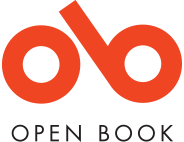 a.image2.image-link.image2-142-184 { padding-bottom: 77.17391304347827%; padding-bottom: min(77.17391304347827%, 142px); width: 100%; height: 0; } a.image2.image-link.image2-142-184 img { max-width: 184px; max-height: 142px; }
a.image2.image-link.image2-142-184 { padding-bottom: 77.17391304347827%; padding-bottom: min(77.17391304347827%, 142px); width: 100%; height: 0; } a.image2.image-link.image2-142-184 img { max-width: 184px; max-height: 142px; } Pros & Cons Interview: Helen Walsh, Author of Film Festival-Set Mystery Pull Focus, Shares Essential Writing & Publishing Tips & Advice
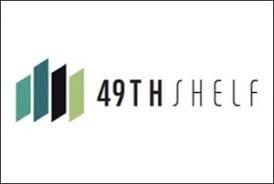 a.image2.image-link.image2-184-274 { padding-bottom: 67.15328467153284%; padding-bottom: min(67.15328467153284%, 184px); width: 100%; height: 0; } a.image2.image-link.image2-184-274 img { max-width: 274px; max-height: 184px; }
a.image2.image-link.image2-184-274 { padding-bottom: 67.15328467153284%; padding-bottom: min(67.15328467153284%, 184px); width: 100%; height: 0; } a.image2.image-link.image2-184-274 img { max-width: 274px; max-height: 184px; } 49th Shelf – Pull Focus an Editor’s Pick for Fall 2021
49th Parallel – Shiver Me Timbers: A Little Murder With My Fall
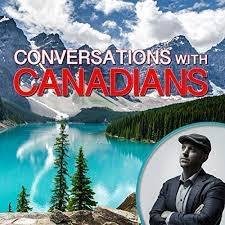 a.image2.image-link.image2-225-225 { padding-bottom: 100%; padding-bottom: min(100%, 225px); width: 100%; height: 0; } a.image2.image-link.image2-225-225 img { max-width: 225px; max-height: 225px; }
a.image2.image-link.image2-225-225 { padding-bottom: 100%; padding-bottom: min(100%, 225px); width: 100%; height: 0; } a.image2.image-link.image2-225-225 img { max-width: 225px; max-height: 225px; } Conversations with Canadians Podcast - Interview
Lots to come including Toronto Star, Toronto Life and Chatelaine, so stay tuned!
I’ll send the next regular Letterbox (in 2 weeks) from London where I’m thrilled to be heading for UK book promotions.
September 7, 2021
Letterbox
Two years after I signed the publishing contract for Pull Focus, and 10 years after I wrote the first few pages, my book officially publishes today.
 a.image2.image-link.image2-412-412 { padding-bottom: 100%; padding-bottom: min(100%, 412px); width: 100%; height: 0; } a.image2.image-link.image2-412-412 img { max-width: 412px; max-height: 412px; }
a.image2.image-link.image2-412-412 { padding-bottom: 100%; padding-bottom: min(100%, 412px); width: 100%; height: 0; } a.image2.image-link.image2-412-412 img { max-width: 412px; max-height: 412px; } I’m grateful to everyone’s enthusiasm in the early reviews of the book, in sending comments, in entering the swag giveaway contest and blogging about it, and of course to my publishing and publicity teams.
If it takes a village to raise a child, it takes a small army of bibliophiles to help a debut writer introduce her novel to the world.
That includes the poet/novelist Priscila Uppal, a close friend and mentor. Years ago, she said over lunch, ‘Helen, you’re always going to be too busy running things. If you want to write, then write. I’ll be your coach and in exchange you can teach me how to raise money for an art + health institute.”
Sadly, Priscila passed away three years ago, almost to the day. I’ll raise of glass of champagne in her memory today and as thanks to David Layton, Anna Porter, Molly Peacock, Barbara Berson and Rabindranath Maharaj, who generously offered editorial feedback over the years.
I hope you’ll join me for these September virtual events! Free with registration.
Thursday, September 9th, 5:30-6:30pm EDT – Diaspora Dialogues Presents Helen Walsh and novelist Rabindranath Maharaj in conversation. Register HERE.
Monday, September 27th, 6-7pm EDT – Bob Ramsay Talks, In Conversation with Helen Walsh. Register HERE.
There are more in-person, virtual and/or hybrid events this fall, as well as book tour in the UK (October) and US (November). Details to come.
The Cutthroat Business of Culture
PULL FOCUS by Helen Walsh is a delightful story that captures the complex and often dark world of a Film Festival with the right amount of behind-the-scenes intrigue. With its crisp dialogue and fast pace, reading the book is like watching a film. The writing style is fresh and convincing.
– Purabi Sinha Das, Goodreads
 a.image2.image-link.image2-317-613 { padding-bottom: 51.56445556946183%; padding-bottom: min(51.56445556946183%, 316.090112640801px); width: 100%; height: 0; } a.image2.image-link.image2-317-613 img { max-width: 613px; max-height: 316.090112640801px; }
a.image2.image-link.image2-317-613 { padding-bottom: 51.56445556946183%; padding-bottom: min(51.56445556946183%, 316.090112640801px); width: 100%; height: 0; } a.image2.image-link.image2-317-613 img { max-width: 613px; max-height: 316.090112640801px; } I had fun writing this CrimeReads article about how the film industry has provided grisly backdrop for authors over the decades. A world of rags-to-riches and sudden reversals; glamour and seediness; eccentricity and charm—cinema and its players are perfect fodder for the criminally inclined.
TIFF + BelfastTIFF opens this week, with an amazing line up of films, both virtual and in-person.
 a.image2.image-link.image2-303-578 { padding-bottom: 52.286585365853654%; padding-bottom: min(52.286585365853654%, 302.2164634146341px); width: 100%; height: 0; } a.image2.image-link.image2-303-578 img { max-width: 578px; max-height: 302.2164634146341px; }
a.image2.image-link.image2-303-578 { padding-bottom: 52.286585365853654%; padding-bottom: min(52.286585365853654%, 302.2164634146341px); width: 100%; height: 0; } a.image2.image-link.image2-303-578 img { max-width: 578px; max-height: 302.2164634146341px; } There are so many in the line-up I want to see, including adapations of All My Puny Sorrows (Miriam Toews) and Scarborough (Catherine Hernandez) as well as Kenneth Brannagh’s Belfast starring Judi Dench, Jamie Dornan, and Ciarnan Hinds.
Brannagh is well-known as an actor and director with a long list of movies, television, documentaries, and stage to his name. Born in Belfast in 1960, his family fled to England nine years later as ‘the troubles’ began to intensify. This heart-wrenching choice to trade community for safety lies at the heart of the film, and of so many people’s experience of emigration.
More than 3500 people died between the late 1960s and when the civil war officially ended in 1998 with the Good Friday Peace Accord, half of them civilian. Unofficially, tensions have continued to simmer, increasing in the past few years as the power-sharing government between Protestant and Catholic politicians collapsed and the British government’s scandalously dishonest handling of Brexit and ‘the Irish problem’ exacerbated fissures.
Brannagh’s film debuted at Telluride a few days ago. Scott Feinberg of the Hollywood Reporter called it the toast of the festival with major Oscar potential; reviews have lauded Brannagh for successfully exploring the political through a personal lens.
 a.image2.image-link.image2-545-368 { padding-bottom: 148%; padding-bottom: min(148%, 544.64px); width: 100%; height: 0; } a.image2.image-link.image2-545-368 img { max-width: 368px; max-height: 544.64px; }
a.image2.image-link.image2-545-368 { padding-bottom: 148%; padding-bottom: min(148%, 544.64px); width: 100%; height: 0; } a.image2.image-link.image2-545-368 img { max-width: 368px; max-height: 544.64px; } I’ve been to Belfast many times, including for meetings about a screenplay I wrote about children of mixed Catholic-Protestant parents, like my own. If you’re not Irish, or haven’t lived in Ireland, it can be difficult to understand just how divided along cultural lines the society still is.
Only 7% of students in Northern Ireland attend integrated schools – ie, schools with both Protestant and Catholic students. (Only 1% of people in Northern Ireland identify as non-Christian.)
Communities and housing are mostly segregated, too, both in the cities and in towns/villages, where rocks painted red, blue and white for the UK’s Union Jack or green, white and orange for the Irish tricolour, signal a Protestant or Catholic neighbourhood.
Against the ugly politics of division, the beauty of Northern Ireland shines. The drive north from Belfast up the Antrim coast, past sheep-dotted green hills, to the Giant’s Causeway (a World Heritage Site) is one of the prettiest in the world.
Nearby is the Carrick-a-Rede Rope Bridge, which crosses a 30-metre deep and 20-metre-wide drop to the ocean. Somewhat afraid of heights, I stayed on the mainland and watched my father and sister trot across to the small island and back.
 a.image2.image-link.image2-381-507 { padding-bottom: 75%; padding-bottom: min(75%, 380.25px); width: 100%; height: 0; } a.image2.image-link.image2-381-507 img { max-width: 507px; max-height: 380.25px; }
a.image2.image-link.image2-381-507 { padding-bottom: 75%; padding-bottom: min(75%, 380.25px); width: 100%; height: 0; } a.image2.image-link.image2-381-507 img { max-width: 507px; max-height: 380.25px; } Ballycastle charms with its harbour and town square, where one year a fortune teller freaked out my normally indomitable sister. (Then again, the fortune-teller told me I was about to have twins - not – so perhaps her delivery was more dramatic than her forecasting ability.)
A short ferry ride will take you Rathlin Island, the only inhabited island off Northern Ireland (150 ppl) which has an extraordinary bird colony.
If you’re a Game of Thrones devotee, you know that the real-life Westeros locations are everywhere: Winterfell (County Down), the Haunted Forest (Tollymore Forest Park), Stormlands cove (Cushendun caves, Country Antrim), Kingsroad (the Dark Hedges), Dragstone locations (Downhill Beach and Mussenden Temple), and more.
 a.image2.image-link.image2-819-1456 { padding-bottom: 56.25%; padding-bottom: min(56.25%, 819px); width: 100%; height: 0; } a.image2.image-link.image2-819-1456 img { max-width: 1456px; max-height: 819px; }
a.image2.image-link.image2-819-1456 { padding-bottom: 56.25%; padding-bottom: min(56.25%, 819px); width: 100%; height: 0; } a.image2.image-link.image2-819-1456 img { max-width: 1456px; max-height: 819px; } Belfast is full of terrific restaurants and the Cathedral Quarter, the Botanic Gardens and Belfast Castle, loads of sporting events and the Titanic Museum, if that’s your jam.
Then of course there’s tours of the troubles, and the infamous political murals.
 a.image2.image-link.image2-430-1318 { padding-bottom: 32.62518968133536%; padding-bottom: min(32.62518968133536%, 430px); width: 100%; height: 0; } a.image2.image-link.image2-430-1318 img { max-width: 1318px; max-height: 430px; }
a.image2.image-link.image2-430-1318 { padding-bottom: 32.62518968133536%; padding-bottom: min(32.62518968133536%, 430px); width: 100%; height: 0; } a.image2.image-link.image2-430-1318 img { max-width: 1318px; max-height: 430px; } The past couple months, I’ve read several thrillers set in Northern Ireland. My friend Julian introduced me to the work of Adrian McKinty, author of the Sean Duffy series, as well as other series and stand-alone books.
Duffy is a Catholic police sergeant, based in Carrickfergus, just outside Belfast, where McKinty himself grew up in a Protestant family. His writing is fierce, fast, darkly funny, emotionally disturbing and spot on about Northern Ireland in the early 1980s, during the worst of the almost daily bombings and murders.
To be a ‘peeler’ (police officer) is to be mistrusted by everyone, but to be a Catholic who joined the Royal Constabulary means you’re a traitor to fellow Catholics and a suspected Fenian terrorist to fellow police officers, overwhelmingly Protestant.
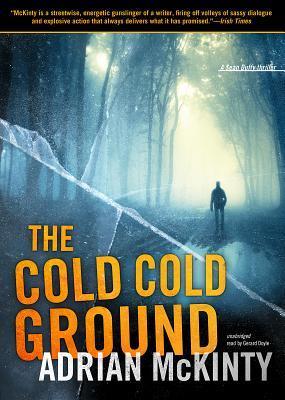 a.image2.image-link.image2-400-285 { padding-bottom: 140.35087719298244%; padding-bottom: min(140.35087719298244%, 400px); width: 100%; height: 0; } a.image2.image-link.image2-400-285 img { max-width: 285px; max-height: 400px; }
a.image2.image-link.image2-400-285 { padding-bottom: 140.35087719298244%; padding-bottom: min(140.35087719298244%, 400px); width: 100%; height: 0; } a.image2.image-link.image2-400-285 img { max-width: 285px; max-height: 400px; } McKinty has said he created Duffy as an outsider to the community to interrogate the milieu in which McKinty had grown up.
“I made him Catholic, a policeman, bohemian and from Derry – four things that were so alien to the people of Coronation Road, Carrickfergus. If an actual alien from space had landed it probably wouldn’t have been as shocking as a Derry Catholic cop walking down their street.”
Duffy is a wry outsider to the world around him in the novel, but also in a sense to the author who created him, given their very different cultural backgrounds. But it’s that outsider voice, combined with keen observation and fiercely talented writing, that provokes insight.
In 2017, after having struggled for twelve years to support his family as a writer, and being evicted from their rental house, McKinty gave up writing to work in a bar and drive Uber. Hearing this sad state of affairs, the author Don Winslow forwarded several of McKinty’s books to his own agent, Shane Salerno.
Salerno convinced McKinty to keep writing the novel that would become The Chain. He even loaned him $10,000. The book went on to become both a bestseller and award-winner, and McKinty is back writing full-time.
My other recent NI read was Northern Spy, written by American author Flynn Berry. The book follows Tessa, a BBC journalist in Belfast, whose sister disappears amongst allegations that she’s an IRA terrorist. The timing is contemporary, albeit a version of Ireland that once again has border controls.
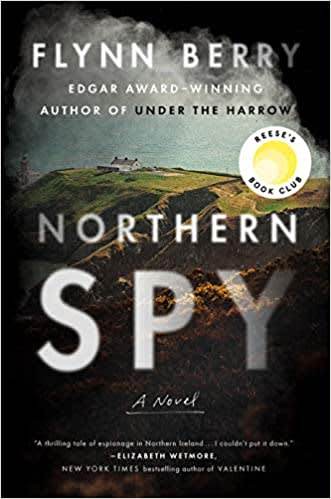 a.image2.image-link.image2-409-271 { padding-bottom: 150.75528700906344%; padding-bottom: min(150.75528700906344%, 408.5468277945619px); width: 100%; height: 0; } a.image2.image-link.image2-409-271 img { max-width: 271px; max-height: 408.5468277945619px; }
a.image2.image-link.image2-409-271 { padding-bottom: 150.75528700906344%; padding-bottom: min(150.75528700906344%, 408.5468277945619px); width: 100%; height: 0; } a.image2.image-link.image2-409-271 img { max-width: 271px; max-height: 408.5468277945619px; } Both McKinty and Flynn write powerfully about the sheer violence and hypocrisy of the paramilitaries – the Irish Republican Army (IRA) and loyalist organizations like the Ulster Volunteer Force (UVF) and Ulster Defence Association (UDA). Both fund their terrorist activities with gun and drug dealing, and in the case of the IRA, through sentimental Irish Catholics in Boston and New York.
Years ago, I was travelling in France with my sister Jackie and her close friend John. John grew up in the Falls Road neighbourhood in Belfast, infamous for its murals and sectarian violence.
John wanted to stop in Lourdes, a major Catholic pilgrimage site. After visiting the Grotto of Massabielle, we sat outside at a café having tea, when a priest recognized John from Belfast and came over to join us.
It was apparent within minutes the priest was an IRA sympathizer who felt that Catholic informants who were killed were an unfortunate necessity in the fight for political freedom.
I started to take him on, before John cut me off. The priest read the situation perfectly; I’ll never forget the arrogant gleam of power in his eye. As we walked stiffly to the car, John said ‘You didn’t grow up in 1970s Belfast, you can’t understand what it was like. And it’s not safe to talk about it.”
We were in France. How dangerous could it be?
John shook his head. Like Brannagh’s family, John’s mother had made the difficult choice to send him away for safety. “It’ll never be safe to criticize the IRA to a man like that. Either in Ireland or anywhere else.”
I’ve thought about that often over the years. When I’m having lunch at Belfast’s Europa Hotel, the most bombed hotel in Europe. Re-watching In the Name of the Father or reading about the long search for justice in the Omagh bombing.
A few years ago, at a book festival, I heard NI journalist Malachi O’Doherty argue that the Peace Accord was only possible because Martin McGuinness and Gerry Adams had teenage sons at the time whom they didn’t want to follow the same bloody path as their own.
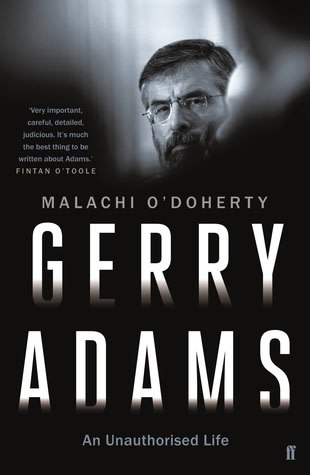 a.image2.image-link.image2-475-310 { padding-bottom: 153.2258064516129%; padding-bottom: min(153.2258064516129%, 475px); width: 100%; height: 0; } a.image2.image-link.image2-475-310 img { max-width: 310px; max-height: 475px; }
a.image2.image-link.image2-475-310 { padding-bottom: 153.2258064516129%; padding-bottom: min(153.2258064516129%, 475px); width: 100%; height: 0; } a.image2.image-link.image2-475-310 img { max-width: 310px; max-height: 475px; } So, I’ll watch Belfast with more than a little interest. All war is intensely personal, but civil war most of all.
Swag.There are only a few weeks left in the swag giveaway contest. Enter HERE for your chance at the weekly giveaway (book bag, t-shirt, baseball cap and signed copy of Pull Focus) as well as the grand prize draw.
 a.image2.image-link.image2-601-601 { padding-bottom: 100%; padding-bottom: min(100%, 601px); width: 100%; height: 0; } a.image2.image-link.image2-601-601 img { max-width: 601px; max-height: 601px; } News & Gossip.
a.image2.image-link.image2-601-601 { padding-bottom: 100%; padding-bottom: min(100%, 601px); width: 100%; height: 0; } a.image2.image-link.image2-601-601 img { max-width: 601px; max-height: 601px; } News & Gossip.This Literary Hub article recommends literary tv/film adaptations coming out during September, both new and old favourites. (CrimeReads + Lit Hub are sister publications.)
**
Salman Rushdie is joining the Substack party, launching Salman’s Sea of Stories, where he will serialize his new 35,000 word novella, The Seventh Wave, and release new short stories.
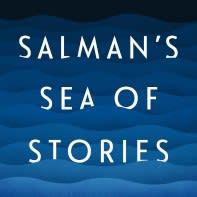 a.image2.image-link.image2-197-197 { padding-bottom: 100%; padding-bottom: min(100%, 197px); width: 100%; height: 0; } a.image2.image-link.image2-197-197 img { max-width: 197px; max-height: 197px; }
a.image2.image-link.image2-197-197 { padding-bottom: 100%; padding-bottom: min(100%, 197px); width: 100%; height: 0; } a.image2.image-link.image2-197-197 img { max-width: 197px; max-height: 197px; } His newsletter is free, but will have extra features for paying subscribers, including more frequent newsletters, behind-the-scenes personal details and interactive forums.
Bye for now. Thank you for joining me for this tenth issue of Letterbox . Please remember to:
July 26, 2021
Letterbox
In a normal year, mid-July would find me busily preparing to leave for Edinburgh.
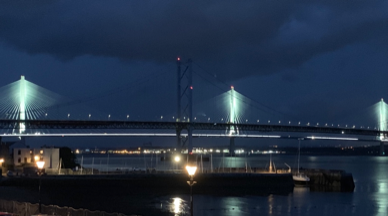 a.image2.image-link.image2-360-646 { padding-bottom: 55.670103092783506%; padding-bottom: min(55.670103092783506%, 359.62886597938143px); width: 100%; height: 0; } a.image2.image-link.image2-360-646 img { max-width: 646px; max-height: 359.62886597938143px; }
a.image2.image-link.image2-360-646 { padding-bottom: 55.670103092783506%; padding-bottom: min(55.670103092783506%, 359.62886597938143px); width: 100%; height: 0; } a.image2.image-link.image2-360-646 img { max-width: 646px; max-height: 359.62886597938143px; } I’d be readying to get up at 3:15am (8:15am BT) to buy Book Festival tickets as soon as the box office opened, scouring @lyngardner’s Twitter feed for Fringe suggestions and pouring over the International Festival catalogue for opera/theatre/dance choices.
This year, I’ll be sitting it out. Joining some events by Zoom but longing for the journey of personal discovery that my days wandering that city, echoes of my mother’s and grandmother’s accents all around me, always is.
 a.image2.image-link.image2-393-525 { padding-bottom: 74.6875%; padding-bottom: min(74.6875%, 392.109375px); width: 100%; height: 0; } a.image2.image-link.image2-393-525 img { max-width: 525px; max-height: 392.109375px; }
a.image2.image-link.image2-393-525 { padding-bottom: 74.6875%; padding-bottom: min(74.6875%, 392.109375px); width: 100%; height: 0; } a.image2.image-link.image2-393-525 img { max-width: 525px; max-height: 392.109375px; } I write well in Scotland. Mornings in the back garden or staring out at the sea in the centuries old South Queensferry stone house that belongs to my friends Clare and Mark. Generous souls who open their doors to a fascinating crop of friends and friends-of-friends during festival season, helping forge connections and curiosity at their big round kitchen table, food in the Aga, wine on the table, laughter in the air.
I take the #43 bus into Edinburgh early in the morning and back late at night, long days filled with talks, plays, opera, music, meanders through museums and galleries, up and down stone stairs/closes between Old Town and New, conversations with strangers in tea gardens, pause moments splayed out on the green grasses of The Meadows or propped on a Princes Street Gardens bench, ice cream in hand.
 a.image2.image-link.image2-351-526 { padding-bottom: 66.66666666666667%; padding-bottom: min(66.66666666666667%, 350.6666666666667px); width: 100%; height: 0; } a.image2.image-link.image2-351-526 img { max-width: 526px; max-height: 350.6666666666667px; }
a.image2.image-link.image2-351-526 { padding-bottom: 66.66666666666667%; padding-bottom: min(66.66666666666667%, 350.6666666666667px); width: 100%; height: 0; } a.image2.image-link.image2-351-526 img { max-width: 526px; max-height: 350.6666666666667px; } (Photo by Stephen Baines)
The sheer scale and audacity of the art available – free and ticketed – is humbling and inspiring. I’ve scribbled away in my notebook in cafes (the quiet of Jenners, the tumult of Pinks, the elegance of Festival Theatre), over wine and charcuterie at Ecco Vino, during dinner at Wildfire Restaurant, in line at Dance Base.
Edinburgh Festivals is struggling with decisions right now. The rising delta-driven coronavirus in the midst of re-opening. How to survive a dramatically slimmed down year after the cancellations of 2020. What a new normal looks like that will balance complaints by residents that the festivals have grown too enormous and overwhelming, versus the badly needed £1bn a year in income it brings.
 a.image2.image-link.image2-320-477 { padding-bottom: 66.95992179863147%; padding-bottom: min(66.95992179863147%, 319.3988269794721px); width: 100%; height: 0; } a.image2.image-link.image2-320-477 img { max-width: 477px; max-height: 319.3988269794721px; }
a.image2.image-link.image2-320-477 { padding-bottom: 66.95992179863147%; padding-bottom: min(66.95992179863147%, 319.3988269794721px); width: 100%; height: 0; } a.image2.image-link.image2-320-477 img { max-width: 477px; max-height: 319.3988269794721px; } Big challenges, no easy answers.
Because there are multiple truths. Virtual events benefit many people who cannot or do not want to attend live events. The elderly, the immuno-compromised, those who face mobility or other access challenges.
But for others, there is no replicating the communal act of being in the same place, at the same time, watching the magic unfold. It sparks accidental connections and creativity. It inspires complete absorption, now rare in our device-controlled lives. It delivers personal truths, big and small.
With innovation, can digital be good enough? Is a vibrant new live/virtual hybrid model possible? We’ll see.
One often hears it’s not the destination but the journey. Sure – but in my experience if the destination is interesting enough, the journey is never just physical.
Edinburgh in August is irreplaceable. It is over-packed, impossible to get around, full of panhandling artists, cramped underground venues, and long queues? Yes.
 a.image2.image-link.image2-317-530 { padding-bottom: 59.70873786407766%; padding-bottom: min(59.70873786407766%, 316.45631067961165px); width: 100%; height: 0; } a.image2.image-link.image2-317-530 img { max-width: 530px; max-height: 316.45631067961165px; }
a.image2.image-link.image2-317-530 { padding-bottom: 59.70873786407766%; padding-bottom: min(59.70873786407766%, 316.45631067961165px); width: 100%; height: 0; } a.image2.image-link.image2-317-530 img { max-width: 530px; max-height: 316.45631067961165px; } But it’s also the next Fleabag in the making. It’s wandering cobbled streets, alleyways and hidden courtyards that people have wandered for hundreds and hundreds of years, audio headset on, spellbound by Janet Cardiff’s ghost story.
It’s hanging out in tented villages, constructed anew each year, with their multi-room venues, food trucks, outdoor bars and chattering, happy people.
Edinburgh has been my refuge and inspiration for fifteen years. Memories of a shared trip with my dear friend Kelley, before she passed away. The delight of watching my partner fall under its spell. It’s sitting in hundreds of Book Festival events, originally as a curatorial guest of British Council, then as a reader, then as a writer hoping very much one-day to be on that stage. (Not yet, not yet. . .)
The impulse for a smaller, more sustainable Edinburgh Festivals is understandable. Who will want to be left out, a little less so.
Clare calls me the migrating bird who re-appears each year at her house, ready to organize readings and performances tickets, walk the sea wall, catch up on the news of the people I’ve met over the years in her magnificent home. I plan to warble my way back there in 2022.
 a.image2.image-link.image2-240-1440 { padding-bottom: 16.666666666666664%; padding-bottom: min(16.666666666666664%, 240px); width: 100%; height: 0; } a.image2.image-link.image2-240-1440 img { max-width: 1440px; max-height: 240px; }
a.image2.image-link.image2-240-1440 { padding-bottom: 16.666666666666664%; padding-bottom: min(16.666666666666664%, 240px); width: 100%; height: 0; } a.image2.image-link.image2-240-1440 img { max-width: 1440px; max-height: 240px; } SWAG is here!
We’re launching a swag campaign this week; full details on helenwalsh.ca or my social media channels.
If you’re already pre-ordered Pull Focus, thank you! Email info@helenwalsh.ca with a copy of your purchase receipt; you’ll receive the four-postcard set, and automatically be entered into a weekly draw (ending Sept 7/21) for a full swag pack. (Book bag, t-shirt, ballcap and signed copy of the book.)
Additionally, for recipients of this newsletter only, there will be swag thank yous for pre-orders:
If you buy two books, you’ll receive a Pull Focus Book Bag:
 a.image2.image-link.image2-371-352 { padding-bottom: 105.21126760563382%; padding-bottom: min(105.21126760563382%, 370.343661971831px); width: 100%; height: 0; } a.image2.image-link.image2-371-352 img { max-width: 352px; max-height: 370.343661971831px; }
a.image2.image-link.image2-371-352 { padding-bottom: 105.21126760563382%; padding-bottom: min(105.21126760563382%, 370.343661971831px); width: 100%; height: 0; } a.image2.image-link.image2-371-352 img { max-width: 352px; max-height: 370.343661971831px; } If you buy three books, you’ll receive a Pull Focus T-shirt (there are four different versions each with a character trope):
 a.image2.image-link.image2-739-1456 { padding-bottom: 50.755494505494504%; padding-bottom: min(50.755494505494504%, 739px); width: 100%; height: 0; } a.image2.image-link.image2-739-1456 img { max-width: 1456px; max-height: 739px; }
a.image2.image-link.image2-739-1456 { padding-bottom: 50.755494505494504%; padding-bottom: min(50.755494505494504%, 739px); width: 100%; height: 0; } a.image2.image-link.image2-739-1456 img { max-width: 1456px; max-height: 739px; } If you buy four books, you’ll receive a Pull Focus Hat:
 a.image2.image-link.image2-339-433 { padding-bottom: 78.26589595375722%; padding-bottom: min(78.26589595375722%, 338.8913294797688px); width: 100%; height: 0; } a.image2.image-link.image2-339-433 img { max-width: 433px; max-height: 338.8913294797688px; }
a.image2.image-link.image2-339-433 { padding-bottom: 78.26589595375722%; padding-bottom: min(78.26589595375722%, 338.8913294797688px); width: 100%; height: 0; } a.image2.image-link.image2-339-433 img { max-width: 433px; max-height: 338.8913294797688px; } If you buy five books, you’ll receive the whole swag pack, and the gratitude of your friends for your gift to them!
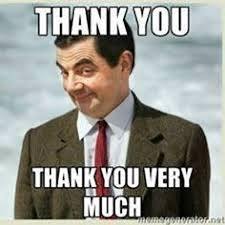 a.image2.image-link.image2-225-225 { padding-bottom: 100%; padding-bottom: min(100%, 225px); width: 100%; height: 0; } a.image2.image-link.image2-225-225 img { max-width: 225px; max-height: 225px; }
a.image2.image-link.image2-225-225 { padding-bottom: 100%; padding-bottom: min(100%, 225px); width: 100%; height: 0; } a.image2.image-link.image2-225-225 img { max-width: 225px; max-height: 225px; } And if anyone needs the link again. . .
Festivals.
A spellbinding debut from Helen Walsh, Pull Focus is a tense, sexy, emotionally charged thriller. Jane, its resourceful, outspoken, often witty central character will not allow herself to be defeated by the dangerous forces that conspire to end her career and, perhaps, her life.
— Anna Porter, author of Deceptions
Yay! The best part of the Toronto year is coming up – Toronto International Film Festival in September. Their 2021 line-up of in-person and digital events includes over 100 films, special events, talks, tribute and interactive experiences over 10 days, as well as the industry conference. Ticket info HERE.
**
Love this VR look inside this year’s Luminato festival (Oct 13-17), courtesy of Great Hall. And their podcast city walk tours are pretty nifty, too.
News & GossipsThis Atlantic Magazine article delves into just how much Hollywood, and its rapacious desire for content, in particular literary adaptations to TV and film, is changing the book publishing industry.
Industry bible Publisher’s Marketplace has listed nearly 4,000 film/tv deals since 2000; last year TV adaptations exceed those of film for the first time. Rotten Tomatoes cites 125 literary adaptations in development right now.
What does this mean for books and authors? TV adaptations of course drive book sales, re-energizing backlist titles. (Think Bridgerton or The Queen’s Gambit.)
According to the article’s analysis, it also influences the # of reviews an author gets on Goodreads, increases academic citations and inclusion in course syllabi. “Nowadays, the first draft of the literary canon is being written in TV Guide.”
Interestingly, adaptations are influencing even whether a book is acquired by publishers. Network and streamer scouts now talk with publishers about adaptation at a very early stage (ie, even before a contract is signed), and production companies, agencies and scouting firms are hiring specialists in literary development.
**
Delighted for my colleague and friend Zalika Reid-Benta. Penguin Canada has acquired Canadian English rights to her upcoming book River Mumma in a two-book deal. The novel is described as a magical realist story about a millennial Black woman who navigates her quarter-life crisis while embarking on a quest through the streets of Toronto. Publication is expected for spring 2023. The deal was arranged by Amy Tompkins of Transatlantic Agency.
**
The folks at Booknet Canada continue their deep dive into Canadian book trends; this installment is Romance and Erotica. In print books, Romance ranked #6 in popularity (25%) and for ebook readers, it was #4 (27%) tied with Fantasy. I remember riding the subway when Fifty Shades of Grey was first a phenomenon and watching women working to camouflage the book cover. A colleague of mine lent me a copy so I could see what the fuss was about but delivered it to my desk in a plain brown envelope.
**
I wrote in a previous Letterbox about new imprint BloomBooks, aimed at ‘entrepreneurial women authors’ who want a more active role in the publishing of their books. They’ve now announced their second partnership (the first being EL James). Fantasy romance author Scarlett St Clair has sold them her full backlist and upcoming novel, King of Battle and Blood (Nov 2021). The first in her self-published series, A Touch of Darkness, was a TikTok driven success, with sales so far this year of almost 60,000 copies and bookstores rushing to keep up with reader requests.
**
A compelling list of African Noir novels, a genre that has so far received less attention than literary novels or Africanfuturism titles. The article explains different trends in regions across the continent and notes that “these novels are often gritty, dark, and unsentimental, reminiscent of pulp from the golden age of detective novels in utilizing traditional methods of detection, rather than CSI-style forensics.” Looking forward to diving in.
 a.image2.image-link.image2-278-556 { padding-bottom: 50%; padding-bottom: min(50%, 278px); width: 100%; height: 0; } a.image2.image-link.image2-278-556 img { max-width: 556px; max-height: 278px; }
a.image2.image-link.image2-278-556 { padding-bottom: 50%; padding-bottom: min(50%, 278px); width: 100%; height: 0; } a.image2.image-link.image2-278-556 img { max-width: 556px; max-height: 278px; } Bye for now. Thank you for joining me for this ninth issue of Letterbox . Please remember to:
June 28, 2021
Letterbox
Live everyone else, my imagination runneth over with images of travel that seem tantalizing closer as more and more of us get our second dose, Air Canada travel offers come fast and furious, and friends ask, sandwiched somewhere between FOGO and FOMO, ‘where will you go first?’
 a.image2.image-link.image2-363-457 { padding-bottom: 79.33333333333333%; padding-bottom: min(79.33333333333333%, 362.55333333333334px); width: 100%; height: 0; } a.image2.image-link.image2-363-457 img { max-width: 457px; max-height: 362.55333333333334px; }
a.image2.image-link.image2-363-457 { padding-bottom: 79.33333333333333%; padding-bottom: min(79.33333333333333%, 362.55333333333334px); width: 100%; height: 0; } a.image2.image-link.image2-363-457 img { max-width: 457px; max-height: 362.55333333333334px; } So, I’ll unspool my Top 10 wish-list of bookish + filmish travel over the next several newsletters. Some are old favorites I’ve revisited many times in my head the past fifteen months, succor for the suddenly stationary.
Others, originally B-roll bucket list items, have now moved up the fantasy food chain, given Covid’s reminder of how just fast the ground can fall, without warning.
San Francisco. I head to the city that spawned the Beat Revolution in mid-September to start my US book tour events.
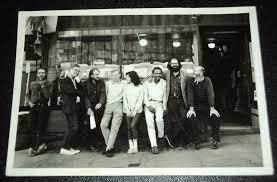 a.image2.image-link.image2-302-459 { padding-bottom: 65.70397111913357%; padding-bottom: min(65.70397111913357%, 301.5812274368231px); width: 100%; height: 0; } a.image2.image-link.image2-302-459 img { max-width: 459px; max-height: 301.5812274368231px; }
a.image2.image-link.image2-302-459 { padding-bottom: 65.70397111913357%; padding-bottom: min(65.70397111913357%, 301.5812274368231px); width: 100%; height: 0; } a.image2.image-link.image2-302-459 img { max-width: 459px; max-height: 301.5812274368231px; } I first went to San Francisco in my 20s and fell immediately in love with the city, and out of love with my then boyfriend, as we walked across the Golden Gate bridge, fighting. (You think it’d be romantic. . .)
Haight Ashbury with its colorful Victorians (even then out of reach financially for all but tech millionaires), leftover vinyl shops and consignment stores, and of course the former Grateful Dead house.
The wedge that’s the Tenderloin, resistant to gentrification, home to shifting waves of immigrants, central to the history of SF’s LGBT2Q+ communities. The area was one of SF’s first gay neighborhood, witness to constant police harassment throughout much of the 20th century and consequent uprisings.
Low-income + vibrant influx of peoples = thriving art scene, and the Tenderloin has long served as a mecca, with its remarkable street murals to get lost amongst and 891 Post Street, where Dashiell Hammett lived and wrote The Maltese Falcon.
Anyone who doesn't have a great time in San Francisco is pretty much dead to me. You go there as a snarky New Yorker thinking it's politically correct, it's crunchy granola, its vegetarian, and it surprises you every time. It's a two-fisted drinking town, a carnivorous meat-eating town, it's dirty and nasty and wonderful. – Anthony Bourdain
The cable car up Knob Hill. Drinks in the Tonga Room & Hurricane Bar – touristy, yes, but then again, you’re a tourist. A walk through the tree-lined streets of Russian Hill, followed by endless shiny grey seals playing at the Waterfront and some irresistible Ghirardelli chocolate.
That long weekend included other tourist things, too. Dim sum in Chinatown. Shopping at Crate & Barrel (not yet then in Canada). The ferry over to Alcatraz. A Presidio drive-by (before it was re-opened as a park) and the Twin Peaks. The San Francisco Museum of Modern Art and a quiet moment of homage to Dr Martin Luther King Jr in the Yerba Buena Gardens.
But my favourite memory of that trip? Discovering San Francisco’s plethora of bookstores.
 a.image2.image-link.image2-344-1456 { padding-bottom: 23.626373626373624%; padding-bottom: min(23.626373626373624%, 344px); width: 100%; height: 0; } a.image2.image-link.image2-344-1456 img { max-width: 1456px; max-height: 344px; }
a.image2.image-link.image2-344-1456 { padding-bottom: 23.626373626373624%; padding-bottom: min(23.626373626373624%, 344px); width: 100%; height: 0; } a.image2.image-link.image2-344-1456 img { max-width: 1456px; max-height: 344px; } The city’s literary cred is undeniable. The obscenity trial over Allen Ginsberg’s Howl. Jack Kerouac, Gary Snyder and the entire Beat Generation. Dave Eggers. Amy Tan. Rebecca Solnit. Alice Walker. Lawrence Ferlinghetti and the City Lights Bookstore & Publishers.
Ferlinghetti sadly passed away earlier this year at the age of 101 but what a remarkable life he lived, in the middle of the shapeshifter that was the 20th century, holding fast to his convictions to the end.
Although I’ve returned to San Francisco a few times since that first trip – to visit the city itself, to drive up to Napa and Sonoma or to start the breathtaking coastal drive down to LA – I don’t think I understood the city and its history until I saw the remarkable film The Last Black Man in San Francisco at Sundance Festival.
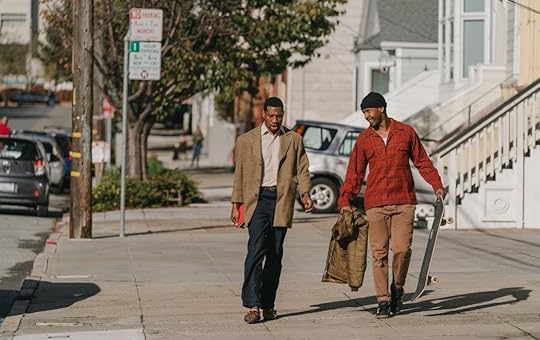 a.image2.image-link.image2-319-505 { padding-bottom: 62.97709923664122%; padding-bottom: min(62.97709923664122%, 318.03435114503816px); width: 100%; height: 0; } a.image2.image-link.image2-319-505 img { max-width: 505px; max-height: 318.03435114503816px; }
a.image2.image-link.image2-319-505 { padding-bottom: 62.97709923664122%; padding-bottom: min(62.97709923664122%, 318.03435114503816px); width: 100%; height: 0; } a.image2.image-link.image2-319-505 img { max-width: 505px; max-height: 318.03435114503816px; } The film is the feature debut of Joe Talbot (director/producer/writer) who collaborated with his childhood best friend, Jimmie Falls, on whose life it’s partly based. The movie possesses the most unique and breathtaking opening sequence I’ve ever seen, and the film overall is a haunting mediation on race, gentrification, friendship and the fight for a soul of a city.
 a.image2.image-link.image2-240-1440 { padding-bottom: 16.666666666666664%; padding-bottom: min(16.666666666666664%, 240px); width: 100%; height: 0; } a.image2.image-link.image2-240-1440 img { max-width: 1440px; max-height: 240px; }
a.image2.image-link.image2-240-1440 { padding-bottom: 16.666666666666664%; padding-bottom: min(16.666666666666664%, 240px); width: 100%; height: 0; } a.image2.image-link.image2-240-1440 img { max-width: 1440px; max-height: 240px; } After fourteen months of lockdown with little drinking, I had a couple glasses of red wine with dinner on Saturday and Pull Focus chased me around my dreams like a Scottish Terrier.
In one fragment I was back in Austin Clarke’s house on McGill Street in Toronto, where a couple decades ago I formed a writers’ collective to publish McGill Street Magazine. In another, I gave birth to a baby (yes, it was rectangular and perfect-bound) which I abandoned to go travelling, and then was annoyed to find it whiny and needy upon my return.
The novel is top of mind as promotions ramp up. It’s extraordinary how multi-faceted book promotion is, from industry trades to libraries/schools to traditional and social media, and everything else in between. Blogs, Bookstagram influencers, Facebook Author Page, Goodreads giveaways, Bookbub (didn’t even know that one a month ago), Twitter chats, podcasts, YouTube book reviews, #BookTOK. . . book lovers congregate in spaces as varied as the books they read.
 a.image2.image-link.image2-556-499 { padding-bottom: 111.39999999999999%; padding-bottom: min(111.39999999999999%, 555.886px); width: 100%; height: 0; } a.image2.image-link.image2-556-499 img { max-width: 499px; max-height: 555.886px; }
a.image2.image-link.image2-556-499 { padding-bottom: 111.39999999999999%; padding-bottom: min(111.39999999999999%, 555.886px); width: 100%; height: 0; } a.image2.image-link.image2-556-499 img { max-width: 499px; max-height: 555.886px; } Although Facebook dominates in size, 90% of US marketers name Instagram as the most important social media platform for influencer marketing. (Another study I read said 98% of marketers, which is 44% higher than Facebook.) This article has some overall interesting stats on social networks.
I’m lucky to be guided by three extraordinary women from whom I’m learning so much – Sarah Miniaci, Elham Ali and Rachel Thompson. Thank you. I’m also grateful for the book recommendations I’m getting from these online communities – my bookshelves groan, but happily.
Many thanks to all of you who so kindly pre-ordered the book. We’re rolling out Pull Focus swag as part of an expanded pre-order campaign next month; I’ll include the details in the next newsletter of how to claim yours!
News & Gossips
Part Real Housewives, part grown-up Nancy Drew, Pull Focus gleefully skewers all players in the international film scene while deftly unspooling a good old-fashioned thriller. Walsh creates a world of glamourous parties, dirty money and weaponized sex.”
– Missy Marston, award-winning author of Bad Ideas
Huma Abedin, brilliant back-room political staffer and long-time aide to Hillary Clinton, has sold her new memoir, Both/And: A Life in Many Worlds to Scribner.
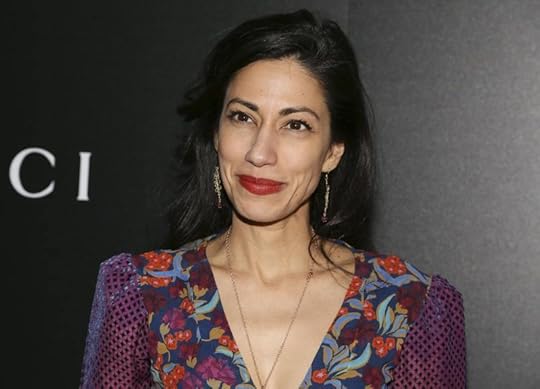 a.image2.image-link.image2-349-483 { padding-bottom: 72.125%; padding-bottom: min(72.125%, 348.36375px); width: 100%; height: 0; } a.image2.image-link.image2-349-483 img { max-width: 483px; max-height: 348.36375px; }
a.image2.image-link.image2-349-483 { padding-bottom: 72.125%; padding-bottom: min(72.125%, 348.36375px); width: 100%; height: 0; } a.image2.image-link.image2-349-483 img { max-width: 483px; max-height: 348.36375px; } Few documentaries left me as gobsmacked as Weiner, which followed former Congressman Anthony Weiner and his (then) wife Human Abedin as he plotted his political comeback, after being forced to resign after revealing photos made it to his Twitter account. (Yes, that’s a euphemism for dick pics.)
Weiner’s political redemption was coming along nicely until the filming of the documentary revealed his sexting had been more extensive and long-lasting than he’d admitted. Weiner was eventually given a 21-month term in federal prison for sending sexually explicit messages and photos to a 15-year-old girl. He was released early for good behaviour in May 2019 although registered as a sex offender.
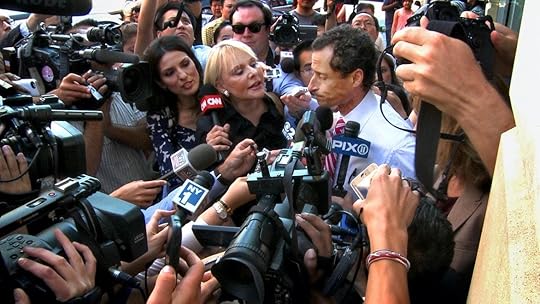 a.image2.image-link.image2-284-503 { padding-bottom: 56.31399317406144%; padding-bottom: min(56.31399317406144%, 283.259385665529px); width: 100%; height: 0; } a.image2.image-link.image2-284-503 img { max-width: 503px; max-height: 283.259385665529px; }
a.image2.image-link.image2-284-503 { padding-bottom: 56.31399317406144%; padding-bottom: min(56.31399317406144%, 283.259385665529px); width: 100%; height: 0; } a.image2.image-link.image2-284-503 img { max-width: 503px; max-height: 283.259385665529px; } It was painful to watch such a remarkably accomplished woman like Abedin as she struggled to deal with the body blows – on camera, because her loving husband had given unconditional access to the camera crew. Here’s hoping her book is a tremendous success.
In other news, Jeffrey Tobin got his job back at CNN despite his masturbation misadventure. Apparently, for CNN, no other legal journalist could hold a – ah, well – candle to him.
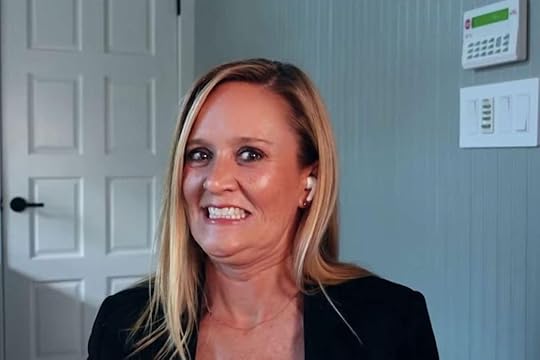 a.image2.image-link.image2-318-477 { padding-bottom: 66.63376110562685%; padding-bottom: min(66.63376110562685%, 317.84304047384006px); width: 100%; height: 0; } a.image2.image-link.image2-318-477 img { max-width: 477px; max-height: 317.84304047384006px; }
a.image2.image-link.image2-318-477 { padding-bottom: 66.63376110562685%; padding-bottom: min(66.63376110562685%, 317.84304047384006px); width: 100%; height: 0; } a.image2.image-link.image2-318-477 img { max-width: 477px; max-height: 317.84304047384006px; } **
What the F is a NFT and how does it impact the literary world? You might well ask.
For those of you who’ve been following the recent buying frenzy of Nyan Cat for $600,000 or digital artist Beeple’s $69.3million Christie’s auction sale, skip along to the next paragraph. But for everyone else, a basics primer.
An NFT, a non-fungible token, is essentially a digital asset. Like you’d buy a painting and hang it on the wall, or a rare book for your cabinet. But digital, accessed through your screen of choice.
NFTs are backed up by the Ethereum blockchain. Ethereum is a crypto currency (an alternative currency to money) backed up by the ‘blockchain’ – a digital ledger that records, and makes transparent, all transactions on it.
NFTs can be any item someone is willing to buy – a piece of visual art, sports trading cards, rare NBA highlights video. Each NFT is unique; none are identical. When you buy it, the blockchain records the transaction and gives you proof of ownership.
How might this benefit writers? It remains to be seen – as does the lasting future of NFTs themselves.
 a.image2.image-link.image2-387-475 { padding-bottom: 81.35802469135804%; padding-bottom: min(81.35802469135804%, 386.45061728395063px); width: 100%; height: 0; } a.image2.image-link.image2-387-475 img { max-width: 475px; max-height: 386.45061728395063px; }
a.image2.image-link.image2-387-475 { padding-bottom: 81.35802469135804%; padding-bottom: min(81.35802469135804%, 386.45061728395063px); width: 100%; height: 0; } a.image2.image-link.image2-387-475 img { max-width: 475px; max-height: 386.45061728395063px; } This longish Lit Hub article explores writers who are riding the NFT wave. At the most rudimentary level, they make an animated GIF of their front cover to constitute the ‘token,’ then sell the book (or pages/chapters) direct to a collector with either full ownership, or with residuals (royalties) should the work be shared or resold. Technically it’s delivered to the new owner like an e-book.
A new group of ‘crypto-writers’ are taking it further, using technology to innovate story structure and form, including experimenting with artificial intelligence.
Proponents argue it’s another step in publishing’s decentralization; that it contains the potential for writers to build direct relationships with their buyers and readers – if they have the time, tech savviness and willingness to do so.
Protos recently released new data that says the NFT bubble may have popped: there’s been a 60 percent decrease in daily sales since May, and the entire first week of June only saw $19.4 million in NFT sales, down from a peak of $102 million in one day.
Just the dip in a normal market cycle, or a crash? Time will tell.
**
I wrote in previous newsletters about the transformative impact of Toronto’s Wattpad, the online community of 80 million users which publishes user-generated stories (90% Millenials or Gen Z) and aims to create social communities between readers and writers (both amateur and established).
Wattpad launched an adult publishing imprint, W by Wattpad Books, last month (after having moved previously into publishing Young Adults Books).
Earlier this year Wattpad sold to South Korean Giant Naver for $600 million USD. Now Wattpad and Naver’s Webtoon are merging their film and TV production studios under the name Wattpad Webtoon Studios and have committed a $100million USD production budget to create content between/across their platforms.
I think Wattpad’s disruption of traditional publishing silos will only ramp up from here.
**
I just finished reading Still Lives by Maria Hummel. Originally published in 2018, I discovered the book after reading a NYT review of the author’s follow-up novel, Lesson in Red, published June 1/21.
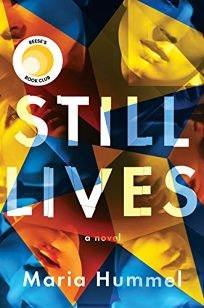 a.image2.image-link.image2-308-204 { padding-bottom: 150.98039215686273%; padding-bottom: min(150.98039215686273%, 308px); width: 100%; height: 0; } a.image2.image-link.image2-308-204 img { max-width: 204px; max-height: 308px; }
a.image2.image-link.image2-308-204 { padding-bottom: 150.98039215686273%; padding-bottom: min(150.98039215686273%, 308px); width: 100%; height: 0; } a.image2.image-link.image2-308-204 img { max-width: 204px; max-height: 308px; } Still Lives, set behind the scenes at LA’s (fictional) Roque Museum, is described as a contemporary feminist thriller about the fetishization of violence against women in the art world. Opening night of a major new exhibit by genre-pushing artist Kim Lord and instead of wowing the glitterati invitees, she vanishes. Is Kim actually dead or is it a disappearing act, one more fake in the political and financial machinations that make up the art market?
Pull Focus, set behind the scenes of the (fictional) Worldwide Toronto Film Festival, is described as a contemporary feminist thriller exploring power and gender, including violence against women at the intersection of culture and commerce, and beyond. Opening night of the festival, protagonist Jane is forced to navigate film industry politics, red carpet paparazzi, and a disappearance all the while connecting the political and financial dots before she loses her career or her life . . .
The publishing world revolves around ‘comparators’ – those titles close enough to yours that will help publishers, booksellers and readers anticipate what they’re getting. I was glad to find this comparator to mine and enjoyed spending time inside the art world and LA, which lives and breathes like a character all on its own.
Bye for now. Thank you for joining me for this eighth issue of Letterbox . And please remember to:
May 5, 2021
Letterbox
If I submitted a screenplay with the events of my past month as its plot points, the story-editor would write ‘strains credulity’ across the top in red ink.
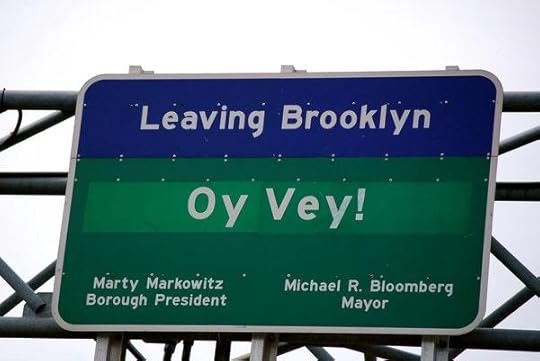 a.image2.image-link.image2-276-412 { padding-bottom: 66.83333333333333%; padding-bottom: min(66.83333333333333%, 275.35333333333335px); width: 100%; height: 0; } a.image2.image-link.image2-276-412 img { max-width: 412px; max-height: 275.35333333333335px; }
a.image2.image-link.image2-276-412 { padding-bottom: 66.83333333333333%; padding-bottom: min(66.83333333333333%, 275.35333333333335px); width: 100%; height: 0; } a.image2.image-link.image2-276-412 img { max-width: 412px; max-height: 275.35333333333335px; } But when I had an apartment in Brooklyn and was adjusting to the rhythms of those strange zoo animals called native New Yorkers, I learned the wisdom in some of their classic maxims. Don’t look up. If a car service isn’t worth going into overdraft for, what is? And always – always – move forward, even if that means sometimes you just gotta fuhgeddaboudit.
So, having recently celebrated my birthday and the start of my personal new year (as the astrologers say) my gaze is fixed firmly on the future, one that will see me out in the world again beyond one-hour daily walks of neighbourhood streets now so familiar I can describe the window treatments of each house by memory.
I’m done with sheet pan recipes in the New York Times; in fact, I’m done with the entire ‘Home’ section and its faux-cheerful ideas of what we can do this week with the remnants of our lives. Give me back ‘Travel’ or short me a section.
I watch like a kid’s face pressed against the candy store window as life inches open in the US – in particular, in New York and California, two of my favorite places, with museums accepting visitors again and people gathering for meals.
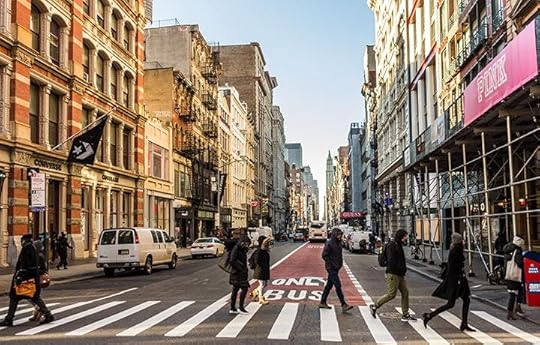 a.image2.image-link.image2-449-702 { padding-bottom: 63.888888888888886%; padding-bottom: min(63.888888888888886%, 448.5px); width: 100%; height: 0; } a.image2.image-link.image2-449-702 img { max-width: 702px; max-height: 448.5px; }
a.image2.image-link.image2-449-702 { padding-bottom: 63.888888888888886%; padding-bottom: min(63.888888888888886%, 448.5px); width: 100%; height: 0; } a.image2.image-link.image2-449-702 img { max-width: 702px; max-height: 448.5px; } I look forward to seeing my family and friends this summer, the possibility of which seems more likely now that +40% of Ontarian adults have received at least one vaccine dose, and the supply is finally becoming reliable.
But, still, like many people, I’m restless. It’s been a long fourteen months; a rollercoaster of emotions large and small, expansive and petty. Who knew that gratitude and gripe could come out of the same mouth, seconds apart?
At night, my restlessness dreams of New York.
London is satisfied, Paris is resigned, but New York is always hopeful. Always it believes that something good is about to come off, and it must hurry to meet it.
― Dorothy Parker
Literary New York is legendary. And pervasive. Difficult to think of another American city that has so drawn writers to live there, while simultaneously acting as the backdrop to novels, plays, music and more.
Who hasn’t thought about Harlem in Toni Morrison’s Jazz or James Baldwin’s Go Tell it to the Mountain? Hunter S Thompson’s Paul Kemp drinking at the White Horse Tavern in The Rum Diary? Known New York as an inexhaustible space, like Paul Auster’s protagonist Quinn in The New York Trilogy?
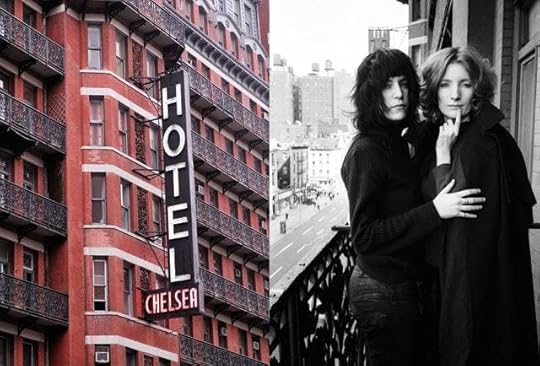 a.image2.image-link.image2-388-572 { padding-bottom: 67.8125%; padding-bottom: min(67.8125%, 387.8875px); width: 100%; height: 0; } a.image2.image-link.image2-388-572 img { max-width: 572px; max-height: 387.8875px; }
a.image2.image-link.image2-388-572 { padding-bottom: 67.8125%; padding-bottom: min(67.8125%, 387.8875px); width: 100%; height: 0; } a.image2.image-link.image2-388-572 img { max-width: 572px; max-height: 387.8875px; } It’s impossible to walk by, or in, the Chelsea Hotel without mental images of a Benny-addicted Jack Kerouac writing On The Road, William Burroughs penning Naked Lunch, Arthur C Clarke creating 2001: A Space Odyssey, or Dylan Thomas in Room 205 falling into the coma that would claim his life the next day.
The list of artists who lived there is dizzying including Allen Ginsberg, Patti Smith, Jimi Hendrix, Thomas Wolfe, Madonna, Sid Vicious, and of course, Bob Dylan writing Sad-Eyed Lady of the Lowlands there for his future wife Sara or Leonard Cohen’s famed rendezvous with Janis Joplin. . .
Where else but New York would an artist’s colony masquerading as a hotel be synonymous with so much of 20th century cultural history?
Also extraordinary are New York’s literary institutions. The reading rooms at New York Public Library’s main branch on 5th. The building and collections of the Morgan Library (the café is great, too). The Strand, especially its rare books room. McNally Jackson Books in Soho. The annual antiquarian book fair at the Armory. The tremendous gift that is the 92nd Street Y cultural programs.
 a.image2.image-link.image2-406-1284 { padding-bottom: 31.61993769470405%; padding-bottom: min(31.61993769470405%, 406px); width: 100%; height: 0; } a.image2.image-link.image2-406-1284 img { max-width: 1284px; max-height: 406px; }
a.image2.image-link.image2-406-1284 { padding-bottom: 31.61993769470405%; padding-bottom: min(31.61993769470405%, 406px); width: 100%; height: 0; } a.image2.image-link.image2-406-1284 img { max-width: 1284px; max-height: 406px; } An extraordinary array of riches for the literary-inclined.
While I’ve enjoyed The Frick’s virtual Cocktails with a Curator Fridays at 5pm and The Met’s website audio tours, it’s a pale imitation of wandering the city for hours, museum-hopping on the Upper East side, a lunch of miso-glazed sea bass at Tao, walking along the High Line to get to the Whitney, dinner at Boucherie in the West Village, a performance out at BAM, late-night Glenfiddich at Pete’s Tavern in Gramercy, before tucking the now aching legs up into bed, only to rise up the next morning and start all over on a stroll down to ABC Kitchen for some caffeine and maybe a little breakfast. . .
NYC re-opens completely in two weeks (but live theatre not until September) causing both hope and anxiety among its residents. From being one of the hardest-hit Covid cities to high vaccination rates (54% one shot, +39% fully vaccinated) and plummeting case counts, New York is – as always – ahead of the pack.
Pull FocusPull Focus book tour plans (both live events and virtual) are gaining momentum! They so far include a Toronto launch in early September and other TO events through October, as well as several US cities from September and November.
The idea of physically seeing people again is both exciting and slightly terrifying. I might need remedial training on the art of making small talk, on not flinching when anyone comes near, and on activating those transverse abs so I can stand up for hours at a time (:
Grazie mille to all of you who so kindly pre-ordered the book. I really appreciated the notes and/or photos you sent. And if anything needs the link again 😉
"With bated breath, I fell deeper and deeper into the complex and intricate mystery so artfully created by Helen Walsh. Jane’s world felt both familiar and unlike one I'd ever seen before. Pull Focus is like a shot of adrenaline. With every page, you keep wanting more."
– Deepa Mehta, film writer and director
"In the end, I couldn't put this novel down. Pull Focus is a propulsive mystery of financial machinations, international malfeasance, and sexual impropriety, but it starts off deceptively, as a sardonic romp among film festival glitterati. The multi-talented woman at the heart of the whirlwind needs to smooth-talk arts board members, play tough with dangerous scoundrels, and manage all of this in the midst of romantic convulsions."
— Antanas Sileika, author of Provisionally Yours
FestivalsThe Festival of Literary Diversity (FOLD) is currently taking place, featuring an amazing line-up of writers, and the snazziest online platform I’ve seen anywhere. An all-access pass is only $39 (events run until May 15th).
 a.image2.image-link.image2-335-595 { padding-bottom: 56.26598465473146%; padding-bottom: min(56.26598465473146%, 334.7826086956522px); width: 100%; height: 0; } a.image2.image-link.image2-335-595 img { max-width: 595px; max-height: 334.7826086956522px; }
a.image2.image-link.image2-335-595 { padding-bottom: 56.26598465473146%; padding-bottom: min(56.26598465473146%, 334.7826086956522px); width: 100%; height: 0; } a.image2.image-link.image2-335-595 img { max-width: 595px; max-height: 334.7826086956522px; } **
I was so delighted to read Stratford Festival’s 2021 Catalogue available HERE. Ticket sales start May 24th for members/donors, and June 4th for general patrons. They suggest booking early; the smaller outdoor venues and social distance seating plans means there will be substantially fewer tickets available.
The line-up looks fantastic, and I’m excited to see several of the plays and talks including Serving Elizabeth by Marcia Johnson, a playwright, librettist and actor I’ve had the pleasure of working with through Diaspora Dialogues.
**
Ben McNally Books boasts a terrific array of virtual author events – buy the book and your invite to the event is free. Sign up for their newsletter to get details, as well as monthly book recommendations!
News & GossipsIn book-to-film news Nomadland, which I had mentioned in an earlier Letterbox, based on Jessica Bruder’s 2017 nonfiction book, won big at the Oscars, receiving recognition as best picture, best director for the uber-talented Chloé Zhao and best actress for Frances McDormand.
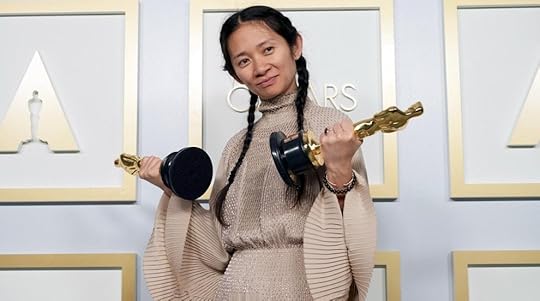 a.image2.image-link.image2-298-535 { padding-bottom: 55.65656565656566%; padding-bottom: min(55.65656565656566%, 297.76262626262627px); width: 100%; height: 0; } a.image2.image-link.image2-298-535 img { max-width: 535px; max-height: 297.76262626262627px; }
a.image2.image-link.image2-298-535 { padding-bottom: 55.65656565656566%; padding-bottom: min(55.65656565656566%, 297.76262626262627px); width: 100%; height: 0; } a.image2.image-link.image2-298-535 img { max-width: 535px; max-height: 297.76262626262627px; } Meanwhile, another adaption I’m looking forward to this month: Monster, May 7th, Netflix. Based on Walter Dean Myer’s award-winning novel about Steve Harmon, a 17-year-old Harlem native attending a prestigious film school, whose life is upended when he’s charged with felony murder. From jail, he writes his story in the form of a movie script. Directed by Anthony Mandler, from a screenplay by Radha Blank, Cole Wiley and Janece Shaffer. Check out the stunning movie trailer here, including sweeping cinematic views of NYC.
**
I loved this recent NYT article about online play readings group cropping up, via Zoom, Skype or through Clubhouse.
Sometimes these groups involve professional actors looking to keep their chops sharp until the return of theatre. And other times, participants are just regular citizens, coming together to read classic plays, or new ones written by members.
Some professional theatres have gotten in on the amateur act. Two dozen or so theaters joined Plays at Home, which commissions playwrights to write and post short plays that people can perform.
“We realized that’s really how people fall in love with the arts, by participating in them,” Nell Bang-Jensen, Theater Horizon’s artistic director, said.
In BC, Boca Del Lupo launched a similar iniative, Plays2Perform@home, a box set of plays that can be ordered online and delivered to your home or picked up on Granville Island.
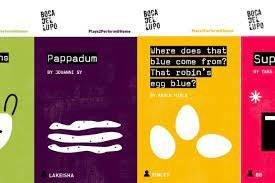 a.image2.image-link.image2-183-275 { padding-bottom: 66.54545454545455%; padding-bottom: min(66.54545454545455%, 183px); width: 100%; height: 0; } a.image2.image-link.image2-183-275 img { max-width: 275px; max-height: 183px; }
a.image2.image-link.image2-183-275 { padding-bottom: 66.54545454545455%; padding-bottom: min(66.54545454545455%, 183px); width: 100%; height: 0; } a.image2.image-link.image2-183-275 img { max-width: 275px; max-height: 183px; } Boca del Lupo Artistic Director Sherry Yoon and Artistic Producer Jay Dodge started asking themselves the questions: what is the essence of theatre? How can we keep the ember burning for those who love performance as much as we do? They concluded that, “theatre is live, theatre is communion, theatre is something to be experienced together, in the flesh.”
I love this. So often we talk about the pivotal role the arts play in a society – a mirror, a reflection, a chronicler of our times. But for that to be true, then the arts must seem alive, and relevant and exciting for audiences. How better to guarantee that than to provide opportunities to participate?
**
We’ve all read about the continuing debate about what books deserve to be published. Recently, Simon & Schuster’s CEO (US) defended his decision to publish former Vice President Mike Pence’s upcoming memoir as well as Kellyanne Conway, against the wishes of many S&S employees.
Is this a freedom of expression issue or a fig leaf held up to defend decisions taken for financial reasons and which contradict the company’s stated anti-oppression efforts?
(BTW, this Politico article looks at what Trump affiliates are rumoured to have landed book deals versus those shopping around with no joy. And the parade of anti-Trump books continues, with Adam Schiff's Midnight In Washington: How We Almost Lost Our Democracy And Still Could (Oct 2021) and Martin Baron's Collision Of Power: Trump, Bezos, And The Washington Post.)
There’s also been a lot of coverage about Blake Bailey’s new biography of Philip Roth being dropped amidst allegations of sexual misconduct against Bailey. This VOX article examines how publishing rallied around to protect Bailey, while this Washington Post article explores misogyny squared – a sympathetic biographer (Bailey) hand-picked to write the book by Roth himself, dutifully parroting negative attributes of Roth’s wife while facing charges of sexual grooming eighth graders.
It brings me back to being a 4th year UofT English Lit student, and being told by my professor, also the chair of the English department, that I should just drop the course after I criticized Norman Mailer for being misogynist. Obviously, he said, I just couldn’t understand Mailer.
 a.image2.image-link.image2-175-175 { padding-bottom: 100%; padding-bottom: min(100%, 175px); width: 100%; height: 0; } a.image2.image-link.image2-175-175 img { max-width: 175px; max-height: 175px; }
a.image2.image-link.image2-175-175 { padding-bottom: 100%; padding-bottom: min(100%, 175px); width: 100%; height: 0; } a.image2.image-link.image2-175-175 img { max-width: 175px; max-height: 175px; } **
In Canadian agenting news. . . Emmy Nordstrom Higdon joined The Rights Factory as an assistant agent, focusing on character-driven #OwnVoices projects. They were previously a bookseller, a blogger at Books Beyond Binaries, and a member of the planning team for the Festival of Literary Diversity.
Meanwhile Karmen Wells, formerly freelance screenplay and manuscript editor at Shelf Made Creative Services, joined the Rights Factory as associate agent for film and TV.
Over at Westwood Creative Artists, Bridgette Kam is moving from the rights department to become a literary associate, working with Jackie Kaiser and Hilary McMahon. Caroline Vassallo has been promoted to international rights associate and film/tv Associate. Briar Jones has joined as Office Manager.
Bye for now. Thank you for joining me for this seventh issue of Letterbox , which will be monthly from now on. And please remember to:
March 22, 2021
Letterbox
 a.image2.image-link.image2-622-402 { padding-bottom: 154.53125%; padding-bottom: min(154.53125%, 621.215625px); width: 100%; height: 0; } a.image2.image-link.image2-622-402 img { max-width: 402px; max-height: 621.215625px; }
a.image2.image-link.image2-622-402 { padding-bottom: 154.53125%; padding-bottom: min(154.53125%, 621.215625px); width: 100%; height: 0; } a.image2.image-link.image2-622-402 img { max-width: 402px; max-height: 621.215625px; } Momentum is building for Pull Focus, and I’m excited. The edit, copy-edit, layout and the proof-read are complete. In a couple months, Pull Focus goes off to the printer.
In the meantime, publicity has started. Advance reading copies are being pitched to long-lead media and trade journals; in April, digital ARCs will be posted to the two industry sites where book reviewers and bloggers access them.
While fall events will be subject to the Covid protocols that are in place six months from now, we’ve so far put plans in place for live events in New York, San Francisco and Los Angeles, with more cities in the works. We’re also exploring Canada and UK options, which will be some combination of live, virtual and hybrid.
It’s a challenge programming in the midst of uncertainty, and ever-changing news cycle, but as one of our NYC partners said, ‘let’s focus on the art of the possible.’ Love that attitude, and certainly easier to adapt an existing event than pull off something good with too little time.
Many of you have asked how to pre-order Pull Focus and bless you for that. Pre-orders are an essential help for publishers, especially independent Canadian-owned ones, as they plan print runs.
It’s also has definite impact with booksellers, as well. Knowing there is early and strong interest in Pull Focus puts the book on their radar screen. Who doesn’t get excited being part of buzz?
Word-of-mouth by indie bookstores has been an essential way that Canadian authors, especially debut ones, find an audience.
For indigo and Amazon, their algorithms are based on sales (+reviews once the book is out). That will determine how Pull Focusis displayed and promoted on their sites, which is really critical to its success.
So, drum-roll, please. . . Pre-orders for Pull Focus is now available at all your favourite booksellers. The options are HERE or click on any links below.
Canada:
US:
UK:
Phew! I’m well-accustomed used to making fundraising pitches (as many of you kind and generous people know. . .) but never a pitch for myself. But as wise writer friends tell me, writers are also small business entrepreneurs. Who knows, maybe an IPO is next. 🙂
Many thanks to Caroline Suzuki for her beautiful photography and cover design.
Ashes, re-emergence, and all that Winnipeg jazz.Ash Wednesday came late for me this year.
Ours was not a very religious family, my father raised an Irish Catholic, my mother a Scottish Presbyterian, although both of them eventually turned their back on organized religion because a too-powerful institution too often squished people whose ways of living they deemed wrong.
As an adult, I often give something up for Lent, the forty days in the Christian calendar that start with Ash Wednesday and end the night before Easter Sunday, because for me occasional restriction and sacrifice brings into stark relief the ‘occasional’ part of that sentence.
The English word Lent is a shortened form of the Old English word lencten, meaning ‘spring season.’ And of course, many religions and countries have observances timed around the March Equinox including Ramadan, Passover, Holi, Nowruz and more.
 a.image2.image-link.image2-448-448 { padding-bottom: 100%; padding-bottom: min(100%, 448px); width: 100%; height: 0; } a.image2.image-link.image2-448-448 img { max-width: 448px; max-height: 448px; }
a.image2.image-link.image2-448-448 { padding-bottom: 100%; padding-bottom: min(100%, 448px); width: 100%; height: 0; } a.image2.image-link.image2-448-448 img { max-width: 448px; max-height: 448px; } It’s the time of year when the sun crosses the celestial equator, and day and time are equal length. For those of us in the northern hemisphere, it’s the threshold to longer days, warmer sun, new crops and the sloughing off of winter.
As an outsider, I’ve fallen in love with Winnipeg over the past decade.
We’ve all heard the jokes about Winterpeg and yes, it is certainly cold that last week of January when you’re searching for the underground entrance to cross Portage and Main and the tears of frustration freeze on your cheeks.
And yes, we all read that Macleans article labelling Winnipeg Canada’s most racist city, a click-bait denial of the systemic racism that exists everywhere in this country.*
 a.image2.image-link.image2-257-735 { padding-bottom: 34.87858719646799%; padding-bottom: min(34.87858719646799%, 256.3576158940397px); width: 100%; height: 0; } a.image2.image-link.image2-257-735 img { max-width: 735px; max-height: 256.3576158940397px; }
a.image2.image-link.image2-257-735 { padding-bottom: 34.87858719646799%; padding-bottom: min(34.87858719646799%, 256.3576158940397px); width: 100%; height: 0; } a.image2.image-link.image2-257-735 img { max-width: 735px; max-height: 256.3576158940397px; } But, at its core, a city is nothing more or less than a collection of people. People willing to invest in and build their community – not when money is abundant but more importantly, when it’s not. People who deliver casseroles to their neighbours when crisis strikes. People who spend $150 for dinner in a pop-tent on the frozen intersection of two rivers at -30°c to support a local restauranteur and because winter’s long, you better have some fun.
(Not the city’s snowbirds, mind you. They’re already in Palm Springs for the season.)
A city of only 800,000, Winnipeg amazingly boasts The Royal Winnipeg Ballet, The Winnipeg Jazz Festival, The Winnipeg Symphony Orchestra, Manitoba Opera, The Winnipeg Folk Festival, Manitoba Theatre Centre and Prairie Theatre Exchange (+ Manitoba Theatre For Young People, Sarasvàti, Le Cercle Molière, Theatre by the River, and more), Winnipeg Philharmonic Choir, Guy Maddin’s films. . .
 a.image2.image-link.image2-423-570 { padding-bottom: 74.20289855072464%; padding-bottom: min(74.20289855072464%, 422.95652173913044px); width: 100%; height: 0; } a.image2.image-link.image2-423-570 img { max-width: 570px; max-height: 422.95652173913044px; }
a.image2.image-link.image2-423-570 { padding-bottom: 74.20289855072464%; padding-bottom: min(74.20289855072464%, 422.95652173913044px); width: 100%; height: 0; } a.image2.image-link.image2-423-570 img { max-width: 570px; max-height: 422.95652173913044px; } It’s a city of marathoners that makes things happen with grit, not deep pockets. Meeka Walsh, editor-in-chief of Border Crossings magazine since 1992, has kept the magazine alive and at the top its game as a pre-eminent visual art journal. Same for Mitch Podolak’s founding of the folk festival in 1974, and its subsequent growth.
Name me another city in Canada of comparable size who citizenry buys season’s tickets, every year to everything, in order to build and sustain this kind of arts community.
I imagine Winnipeggers on this list rolling their eyes as I type this. Am I glossing over the challenges, the inequities, the wrongs? Yes, I am, but I’m an outsider, those are not mine to detail.
What I do think is fair to talk about is my experience of this city, once the main hub of Western Canada before that damn Panama Canal was built and ships were able to take goods to Vancouver, shifting the balance of economic power.
And those experiences are memorable.
Sitting with a thousand people in Centennial Concert Hall in the dead of winter for opening night of a New Music Festival. Producing sold-out talks with Cornel West, Winona LaDuke, Chris Hedges – left-wing speakers who drew 500-750 people each in this city whose 1919 general strike remains the largest strike for workers’ rights Canada has ever seen.
 a.image2.image-link.image2-421-631 { padding-bottom: 66.66666666666667%; padding-bottom: min(66.66666666666667%, 420.6666666666667px); width: 100%; height: 0; } a.image2.image-link.image2-421-631 img { max-width: 631px; max-height: 420.6666666666667px; }
a.image2.image-link.image2-421-631 { padding-bottom: 66.66666666666667%; padding-bottom: min(66.66666666666667%, 420.6666666666667px); width: 100%; height: 0; } a.image2.image-link.image2-421-631 img { max-width: 631px; max-height: 420.6666666666667px; } Bike-jams where more than a thousand people showed up to rock the music and ride the streets. Tough public conversations in the North End’s Thunderbird House about what reconciliation really means, or with Cindy Blackstock about the inexcusable federal funding inequities for Indigenous children.
I’ve produced hundreds of talks and performances across Canada, none more vibrant than in Winnipeg.
On the preservation of historical buildings, Winnipeg has a decidedly mixed record. But I love the Downtown’s Exchange District with its mix of housing, office, retail and restaurants like the Peasant Cookery with gnocci so light and flight you don’t mind having three meetings there in as many days.
Overall, Winnipeg is flush with culinary options, from Turkish Eggs at Clementine’s to Sri Lankan in The Forks to the entire menu at Enoteca Wine Bar to the Sunday brunch chocolate fountain at the Fort Garry Hotel (followed by the best hammam in the country upstairs at TenSpa).
And don’t even get me started about the tapas at Segovia, for which I’m still sitting shiva after learning those big wooden doors closed for good last year.
 a.image2.image-link.image2-502-502 { padding-bottom: 100%; padding-bottom: min(100%, 502px); width: 100%; height: 0; } a.image2.image-link.image2-502-502 img { max-width: 502px; max-height: 502px; }
a.image2.image-link.image2-502-502 { padding-bottom: 100%; padding-bottom: min(100%, 502px); width: 100%; height: 0; } a.image2.image-link.image2-502-502 img { max-width: 502px; max-height: 502px; } I rarely rent a car when I’m in Winnipeg, so my experience is primarily related to the downtown, but I’ve been out to visit the polar bears at the Zoo/Assiniboine Park, to Birds Hill Provincial Park for the multi-day extravaganza that is the Winnipeg Folk Festival and of course to McNally Robinson bookstore.
But mostly I like to wander. From the Fort Garry where I often stay, down through the old Via train station to The Forks, where the Assiniboine River meets the Red River, a place of importance for thousands of years for the Nakoda, Cree, Anishinaabe and Dakota.
 a.image2.image-link.image2-381-570 { padding-bottom: 66.71428571428571%; padding-bottom: min(66.71428571428571%, 380.27142857142854px); width: 100%; height: 0; } a.image2.image-link.image2-381-570 img { max-width: 570px; max-height: 380.27142857142854px; }
a.image2.image-link.image2-381-570 { padding-bottom: 66.71428571428571%; padding-bottom: min(66.71428571428571%, 380.27142857142854px); width: 100%; height: 0; } a.image2.image-link.image2-381-570 img { max-width: 570px; max-height: 380.27142857142854px; } The 14-acre site, once an abandoned railyard, is a dynamic mixed-use space with walking trails, a market, hotel and restaurants, theatre and museums (including the Canadian Museum of Human Rights), public art and more.
From there, you can cross the bridge into St Boniface’s Francophone community; or west along Portage, to the University of Winnipeg, the provincial legislature (possibly the prettiest in the country with its limestone, Golden Boy and strange masonic symbols scattered throughout the building – that’s the quite the tour), and from there south across the river to hipster Osborne Village, past its colorful street murals to enjoy some stand-up comedy or burlesque, live music or dive bar, boho stores and custom cocktails.
 a.image2.image-link.image2-405-571 { padding-bottom: 70.8984375%; padding-bottom: min(70.8984375%, 404.830078125px); width: 100%; height: 0; } a.image2.image-link.image2-405-571 img { max-width: 571px; max-height: 404.830078125px; }
a.image2.image-link.image2-405-571 { padding-bottom: 70.8984375%; padding-bottom: min(70.8984375%, 404.830078125px); width: 100%; height: 0; } a.image2.image-link.image2-405-571 img { max-width: 571px; max-height: 404.830078125px; } I haven’t even scratched the surface of the weird and whacky, but the rest you’ll have to discover for yourself. At the end of the day, though, Winnipeggers are the very best thing about the place. They’re funny, talented, straight-forward and generous. And above all, committed to their city, even when it drives them crazy.
Ten days ago, my house was gutted by fire. My books – those old friends – all gone. Ditto for all my clothing, shoes, furniture and furnishings. The art may yet be saved, fingers crossed. The loss of it would break my heart, again.
The firemen told me to count my blessings; no-one was hurt, that was the main thing. And of course, that’s true, although at the same time it’s not that simple. The things in my home, while only things, represented the tree rings of my life. And beneath and between the endless pragmatic details that need attended, pokes a grief as resolute as the front garden’s irises, whose green tips can be seen amidst the charred remains.
 a.image2.image-link.image2-361-485 { padding-bottom: 74.31640625%; padding-bottom: min(74.31640625%, 360.4345703125px); width: 100%; height: 0; } a.image2.image-link.image2-361-485 img { max-width: 485px; max-height: 360.4345703125px; }
a.image2.image-link.image2-361-485 { padding-bottom: 74.31640625%; padding-bottom: min(74.31640625%, 360.4345703125px); width: 100%; height: 0; } a.image2.image-link.image2-361-485 img { max-width: 485px; max-height: 360.4345703125px; } But. Here I sit. 5am Sunday morning, the waning hours of the equinox. The sky will soon turn a burnt sienna as the sun prepares to come out. Warmer temperatures tease, and the promise of spring is evident in the gorgeous white flower bouquet sent by my partner’s sisters, colourful tulips from my friend Sujin.
And I’m thinking about with the collection of people in my life with whom I hold community, including all of you. Thank you.
* The April issue of Maclean’s about the mistakes of the pandemic is a must-read.
News & GossipsNews & Gossips
That Margaret Atwood is up to good again. Long a supporter of other writers through organizations like the Writers Trust and PEN Canada, she’s involved in a new project to benefit the Authors Guild Foundation. I noticed this item in Publishers Marketplace:
Margaret Atwood, Douglas Preston, and the Authors Guild's FOURTEEN DAYS, a collaborative novel set in a tenement in New York City during the early days of the COVID-19 lockdowns, in which neighbors left behind when the rich flee the city gather on the rooftop to share stories; each character is narrated by a different major author, including Angie Cruz, Emma Donoghue, Dave Eggers, Diana Gabaldon, Tess Gerritsen, John Grisham, Maria Hinojosa, CJ Lyons, Celeste Ng, Mary Pope Osborne, Ishmael Reed, Hampton Sides, Nafissa Thompson-Spires, and Monique Truong. For publication in spring/summer 2022.
**
Of course, all things marketing is of interest to an author with a book to sell, and I’ve been participating in some great workshops including Farzana Doctor’s on lessons she learned promoting a book during a pandemic.
So, the article in the NYT about the rising influence of TikTok in book publicity was fascinating. “Videos made mostly by women in their teens and 20s have come to dominate a growing niche under the hashtag #BookTok, where users recommend books, record time lapses of themselves reading, or sob openly into the camera after an emotionally crushing ending.”
Shannon DeVito, director of books for Barnes & Noble noted they hadn’t seen these types of crazy sales – tens of thousands of copies a month – with other social media formats. Arguably, these are primarily books that appeal to teenage girls (fantasy and YA), but great that these young women are such passionate book readers.
“I want people to feel what I feel,” said Mireille Lee, 15, who started @alifeofliterature in February with her sister, Elodie, 13, and now has nearly 200,000 followers. “At school, people don’t really acknowledge books, which is really annoying.”
A month ago, Refinery29 wrote about the ‘wholesome’ nature of BookTok, the incentive for these users to join the community. “A sanctuary for literature lovers of all kinds, the #booktok tag currently has over 4.4 billion views as creators discuss their favourite reads through video reviews, recommendations and book nerd memes.”
**
I’m a complete addict of cookbooks by Yotam Ottolenghi, so I’m delighted that Ottolenghi Test Kitchen: Shelf Love will be available this fall, featuring veggie-forward dishes and diverse influences from their test kitchen, as well as tops on how to tweak and modify. Oh, to be one day back in London eating at one of their restaurants instead of to cook his food for myself!
Bye for now. Thank you for joining me for this sixth issue of Letterbox. Please connect with me on Twitter, Instagram, Goodreads, Clubhouse: @helenwalsh, and my website.



